For your information
Your contributions
The next call for contributions is September 1, 2025.
If you would like to share your input, please visit the dedicated page for more details.
Feedback form
We are seeking your valuable input on how to enhance our newsfeed platform. Your feedback is crucial to our efforts to improve this platform and ensure that it effectively serves the needs of our users.
We kindly request you to consider the following questions in the feedback form:
What types of content would you like to see more frequently on the newsfeed?
Are there any features or functionalities that you believe would significantly improve the user experience?
Thank you for your time!
UNECE Forest and Bioeconomy Section
Current Highlights
The 83rd UNECE Committee on Forests and the Forest Industry (COFFI) session will be held 4-6 November 2025 in Geneva.
Its core focus is "Navigating Global/Regional Trade Dynamics and the Future of Forest Products." The session will also cover the state of Pan-European forests, damage and resilience monitoring, urban action, and forest fires.
Join us to discuss challenges, identify opportunities, and forge pathways for a resilient and sustainable future for our forests and industries.
For more information: here

Representing 27% of all forests worldwide, boreal forests are the planet's terrestrial "second lung", after tropical forests. Encircling the North Pole, they span North America, Europe, and Asia, playing a vital role in global carbon sequestration and storage, biodiversity, and in supporting societies and economies.
Despite their importance, boreal forests do not receive the same visibility and attention among policymakers and the public as their tropical forest counterparts.
A new study published by the United Nations Economic Commission for Europe, highlights the urgent need to increase the understanding of this global “treasure trove” and to safeguard its important contributions to the planet and society. The study finds that despite the importance of the boreal biome, there are significant gaps in knowledge about its forests, their role in sustainable development, and their future.
The comprehensive study is accompanied by a series of national overviews for Canada, Finland, Norway, the Russian Federation, Sweden, and the USA.
For more information: here
Save the Date
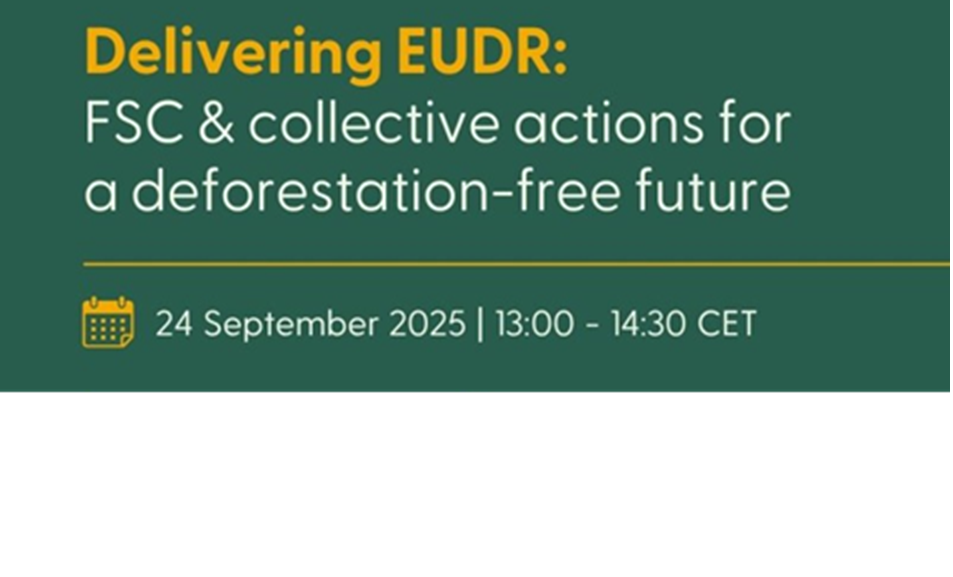
On September 24, FSC will host a high-level webinar to discuss how we can collectively deliver on the EU Deforestation Regulation (EUDR).
The implementation approaches, and it is time to connect across sectors. Hear from EU policymakers, competent authorities, and business leaders as they share insights on recent developments, enforcement, and what EUDR means in practice. It will be an opportunity to align collective efforts and understand how collaboration can impact on the ground.
For more information: here
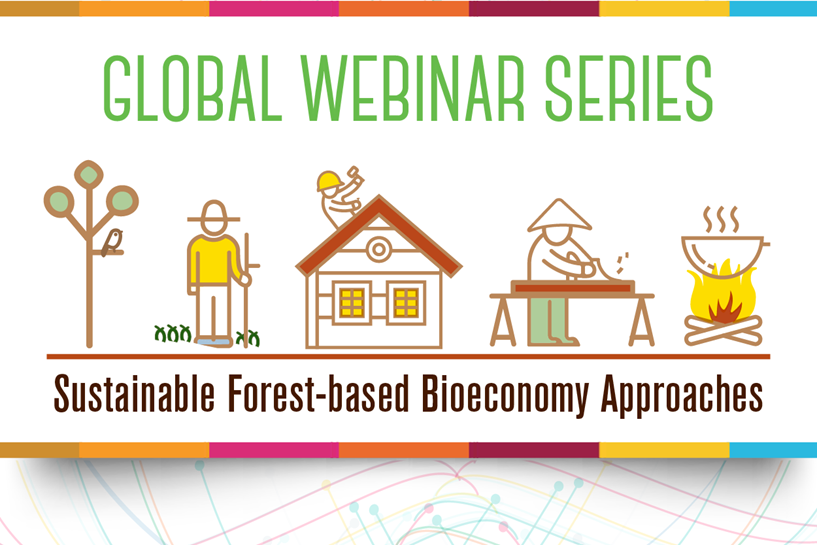
Join the FAO throughout 2025 for a dynamic global webinar series and understand how to unlock the forest sector’s transformative potential for decreasing reliance on non-renewable resources in a sustainable bioeconomy and transition to climate-positive societies:
- September 30 - Accelerating inclusive agrifood systems: transformation with forests, trees, wild species.
- October 20 - Building the future: innovative wood solutions for carbon neutrality and sustainable bioeconomy.
- December 10 - Bioeconomy cooperation: next steps to upscale forest-based bioeconomy.
For more information: here

The seminar to be organized organised in connection with the European Forest Institute’s Annual Conference will bring together scientists, experts, policymakers, and stakeholders to discuss the increasing risks of forest disturbances and their implications for sustainability, management, and policy. The event will open with presentations on observed and expected impacts, covering trends in disturbances, effects on forest resilience, biodiversity, and the carbon sink, as well as the consequences for the supply of wood and other ecosystem services. Discussions will then focus on strategies for prevention and response, resilience-building measures, and the role of salvage logging.
Check out the latest updates on the Seminar programme here and register here
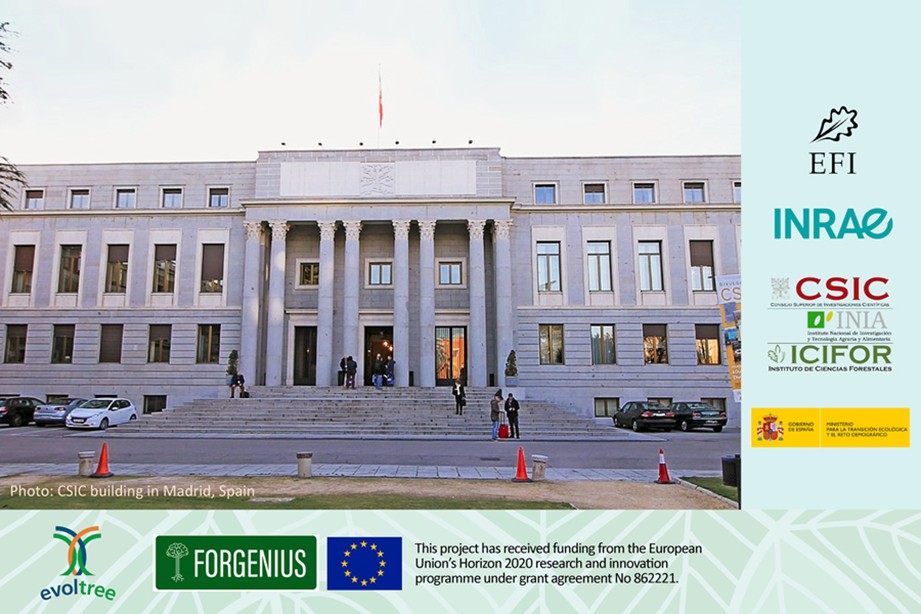
Join the EVOLTREE–FORGENIUS Joint Conference in Madrid, Spain, on November 18–21, 2025, to explore forest biodiversity, genomics, and climate resilience. This international event combines the Third EVOLTREE Conference with the Final FORGENIUS Conference under the theme “Integrative Diversity of Forest Ecosystems.” Sessions will address forest resilience, genomic tools, conservation, and science-policy integration.
Late registration is open until August 15. Grants of up to €800 are available for early-career researchers from EVOLTREE member organisations presenting a poster or talk.
Find out more and register: here
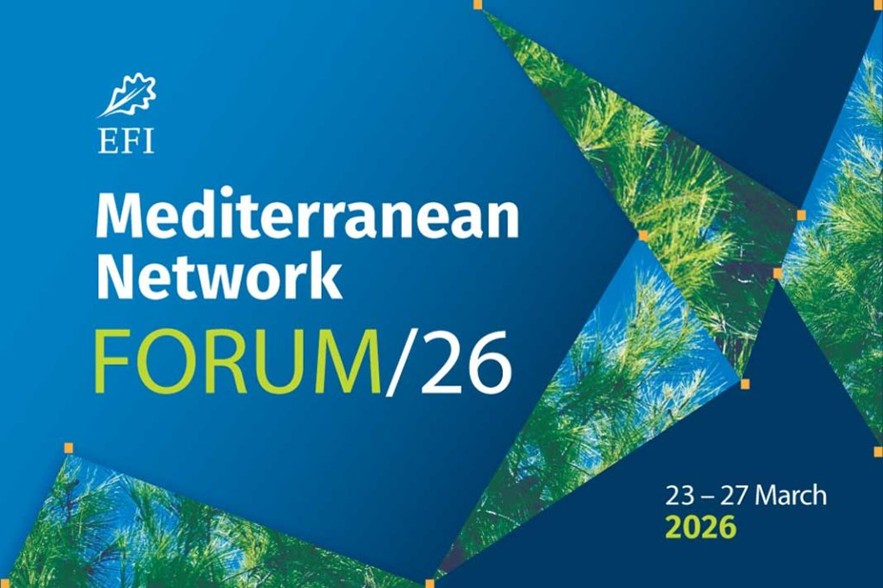
The EFI Mediterranean Facility (EFIMED) is delighted to announce the second edition of the European Forest Institute (EFI) Mediterranean Network Forum, taking place on March 23-27, 2026. The venue will be confirmed by the end of summer. The Forum brings together forest researchers, policymakers, and practitioners from across the Mediterranean through workshops, thematic sessions, posters, debate, and networking opportunities. This edition will include a midterm review of the Mediterranean Forest Research Agenda (MFRA) 2030. EFIMED looks forward to welcoming both new and existing partners and to strengthening collaboration across its Mediterranean forest network.
For more information: here
UNECE Forest Section

The UNECE-led webinar, held on April 24, 2025, explored water-smart solutions for urban forests in dry climates. Featuring experiences from Cuenca, Ouagadougou, and Stockholm International Water Institute (SIWI) Locally Controlled Forest Restoration (LoCoFoRest) initiative, it showcased approaches to strengthen climate resilience through tree planting and forest restoration. Part of the Trees in Dry Cities Coalition, launched at COP28, the webinar series fosters exchange among governments, cities, and practitioners to co-develop strategies that address water scarcity, promote inclusive urban planning, and improve ecosystem services in arid urban environments.
For more information: here
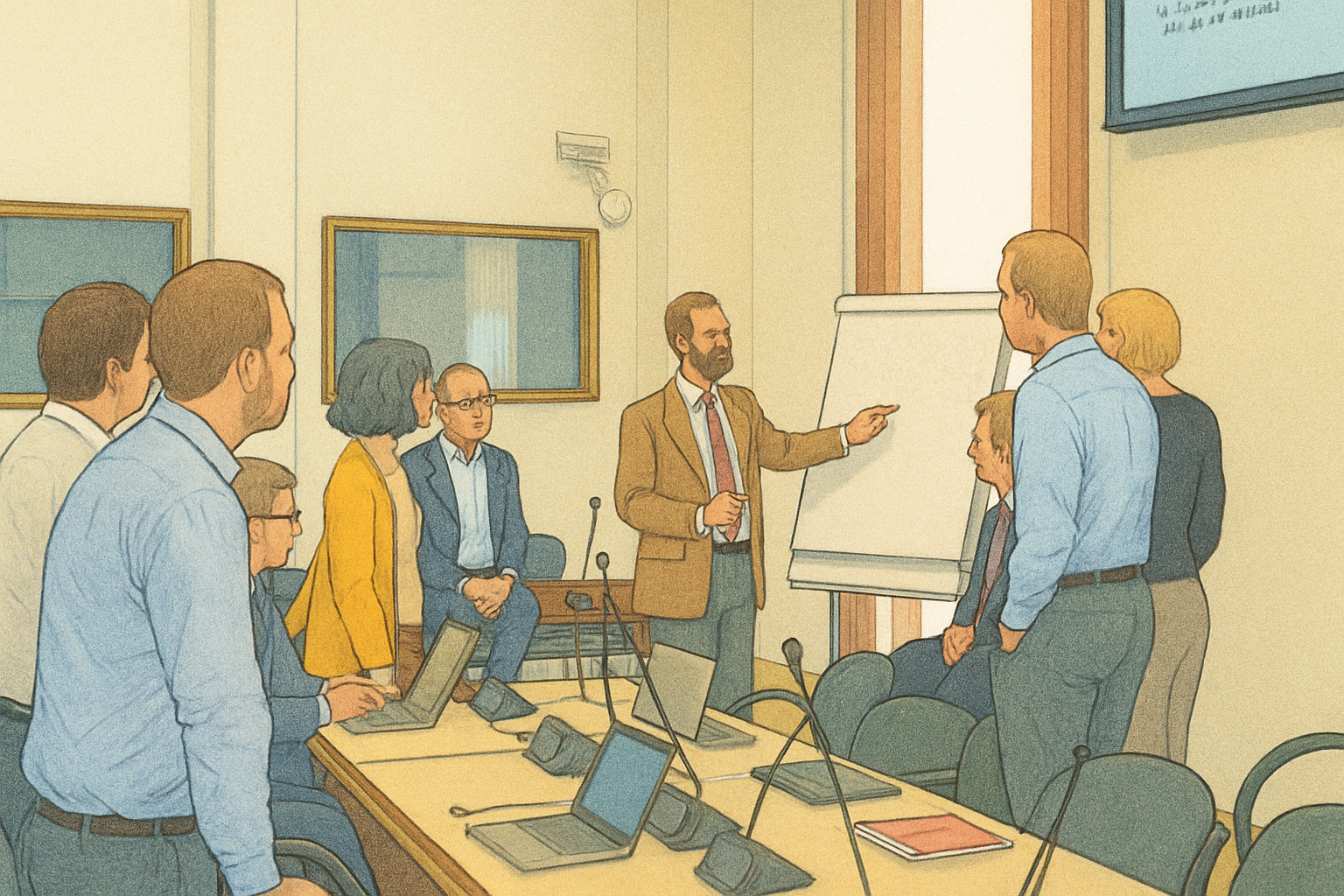
The UNECE/FAO Joint Working Party convened its 46th session on May 14-15, 2025, with a thematic focus on forest fires and climate change. Experts and delegates addressed the intensifying global wildfire crisis underscoring that wildfires now occur year-round, threatening ecosystems, health, and climate. While fire can benefit forests through nutrient recycling and regeneration, worsening climate conditions are turning it into a catastrophe. The group called for integrating wildfire risk into climate strategies ahead of UNFCCC COP30. Recommendations included sustainable forest management, prescribed burns, better land-use planning, cross-border cooperation, and stronger firefighting capacity to build resilient landscapes. For more information: here

The UNECE Forest and Bioeconomy Section actively participated in three key events at the UNFF May 2025 session. Highlights included the launch of our unique Boreal Study, a report on important regional forest developments and challenges, and moderating a Ministerial High-Level Side Event on the new UN General Assembly resolution for the Reforestation and Afforestation Decade (starting 2026). We also delivered the keynote address at the first-ever UNFF plenary on dryland forests, uniquely focusing on forests in dry cities. We thank UNFF and the delegations present for these unique opportunities for collaboration and building bridges between local, regional, and global action.
For more information: here
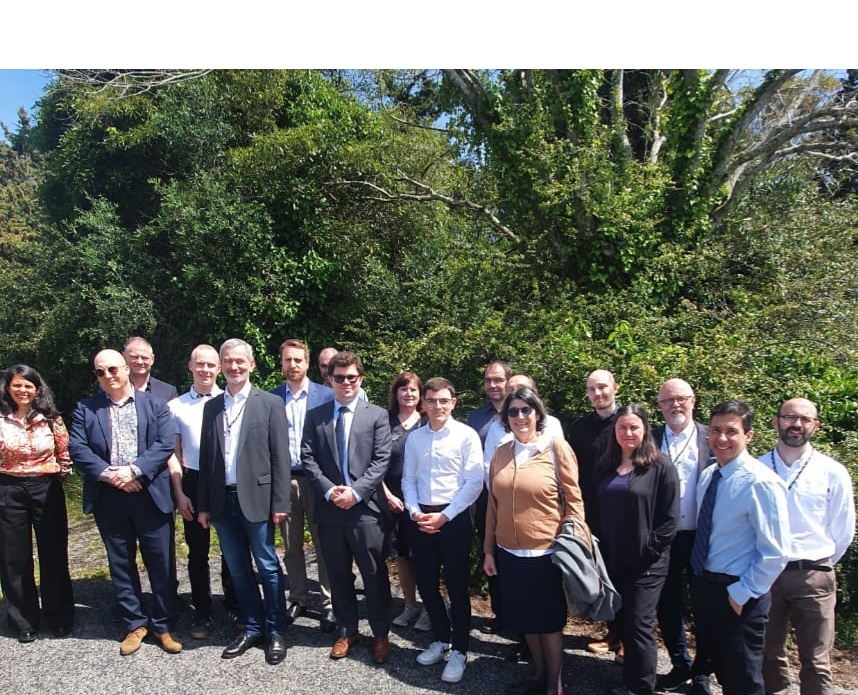
At its 4th meeting, the Team of Specialists on Forest Products and Wood Energy Statistics reviewed the Central Data Platform, currently piloted and encouraged countries to support its continued development. Two ad hoc task groups made key contributions: one recommended enhanced reporting of non-stemwood in removals statistics following a comprehensive review of removals statistics methodologies; the other explored how wood energy data could better inform climate and energy policy. A peer mentoring programme was launched to support national focal points, and the Team endorsed exploring data collection on wood use in construction. These initiatives aim to improve data quality, comparability, and policy relevance. For more information: here
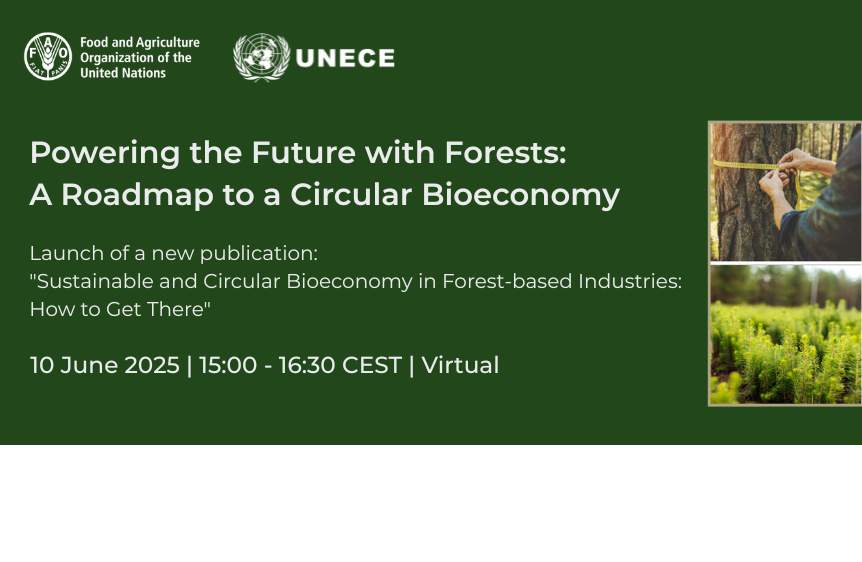
On June 10, 2025, the UNECE/FAO held an online event to launch a new joint publication "Sustainable and Circular Bioeconomy in Forest-based Industries: How to Get There”. Over 80 participants discussed how forests can drive a circular bioeconomy. Speakers emphasized enabling policies, cross-sector collaboration, and innovation to harness forest-based solutions while protecting biodiversity. Presentations highlighted successful case studies, policy recommendations, and the importance of aligning bioeconomy efforts with climate and social goals. The event closed with a call for stronger international cooperation and inclusive action to advance a sustainable, circular bioeconomy that supports economic resilience and environmental stewardship. For more information: here
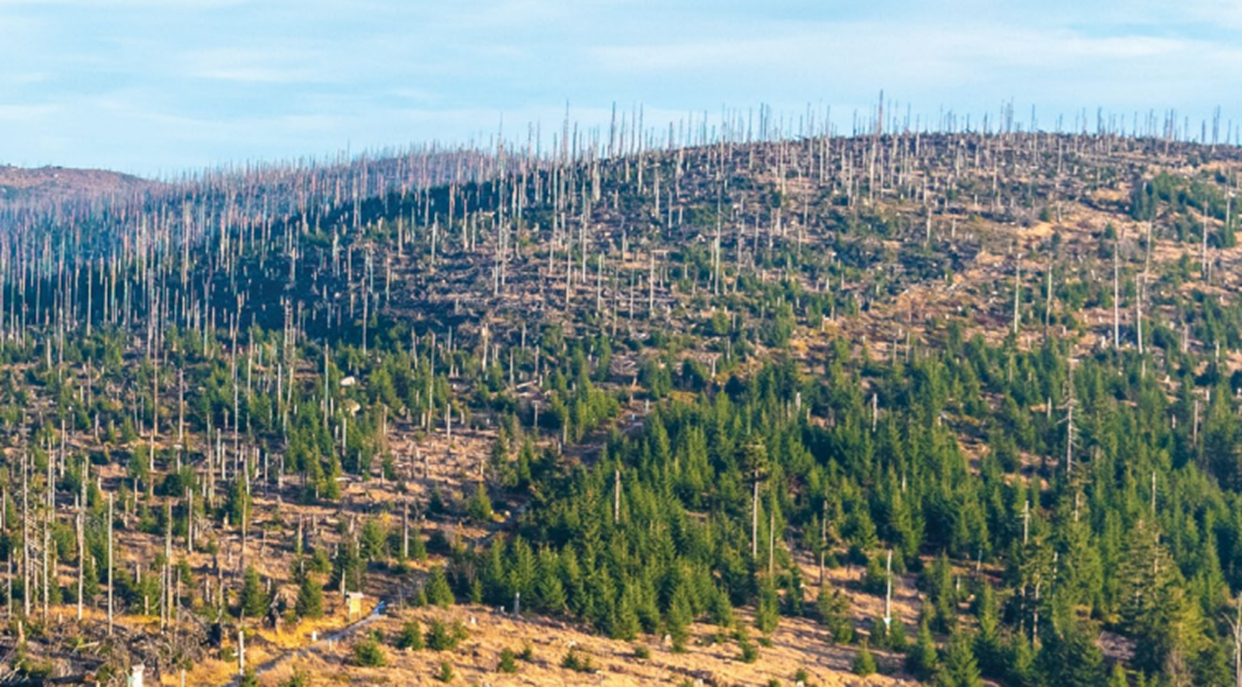
Accurate and timely information on forest disturbance and damage is crucial for effective policies ensuring the vitality and sustainable management of forests. The UNECE Team of Specialists on Monitoring Sustainable Forest Management is developing a proposal for a refined assessment and collection of forest damage data. It focuses on reporting purposes, damage classifications, relevant metrics, and the integration of new technologies. The objective is to enhance the transparency, consistency, and reliability of forest health and damage information in the region, thereby improving sustainable forest management and fostering environmental resilience. The proposal will be presented at the Team's meeting on September 9-11, 2025, in Siegburg, Germany. For more information: here
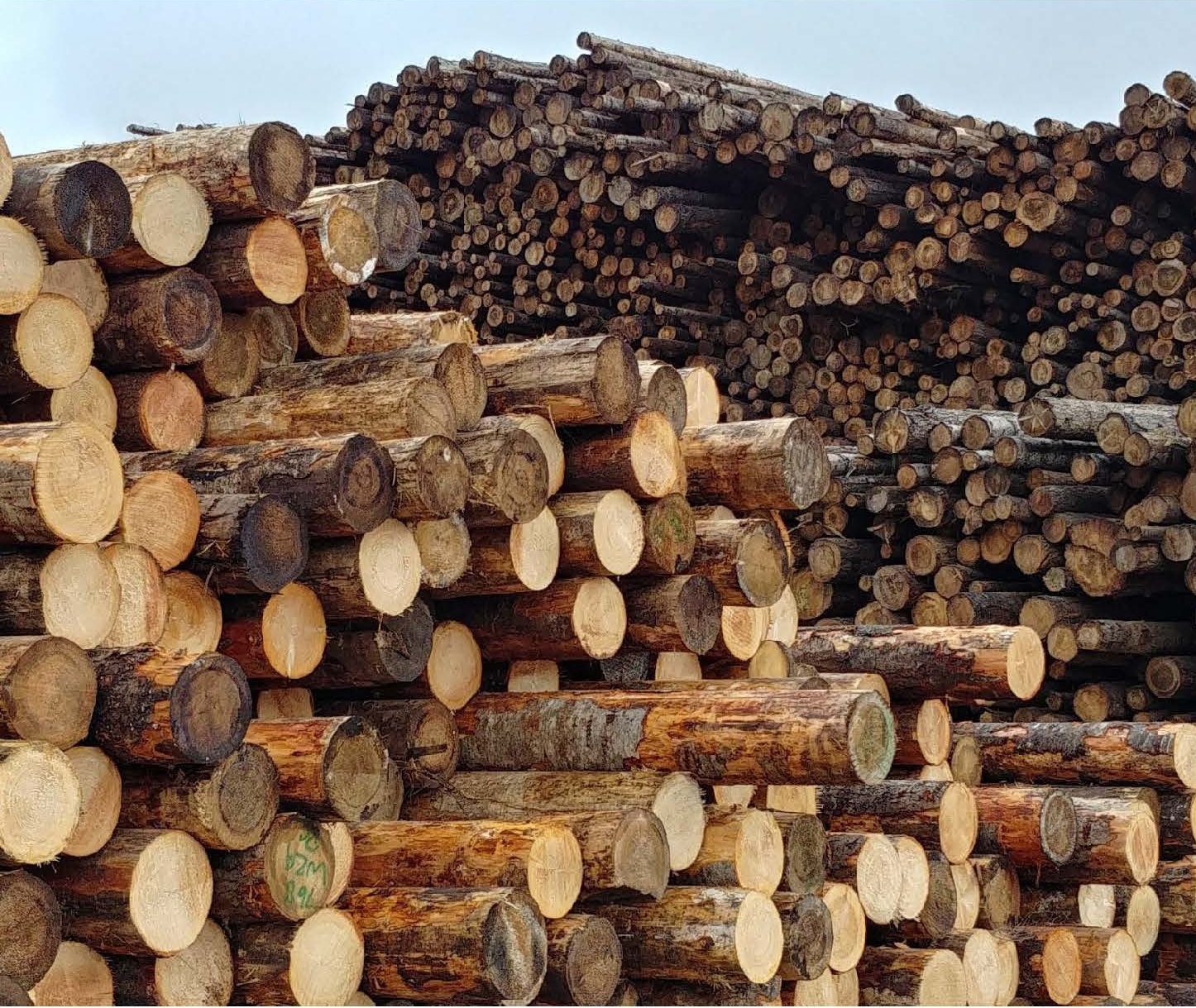
This compilation presents an overview of forest-related policies and market developments across 16 countries in the UNECE region. Based on official national submissions to the November 2024 COFFI session, each chapter offers detailed analyses of past and current trends, with a strong emphasis on wood and wood product markets. Country-level information includes insights into general economic conditions affecting the forest sector, recent policy measures, key market drivers, and notable developments. Covered sectors include wood raw materials, wood energy, certified forest products, sawn softwood and hardwood, structural and non-structural wood-based panels, pulp, paper and paperboard, and housing and construction—particularly timber-based construction. For more information: here
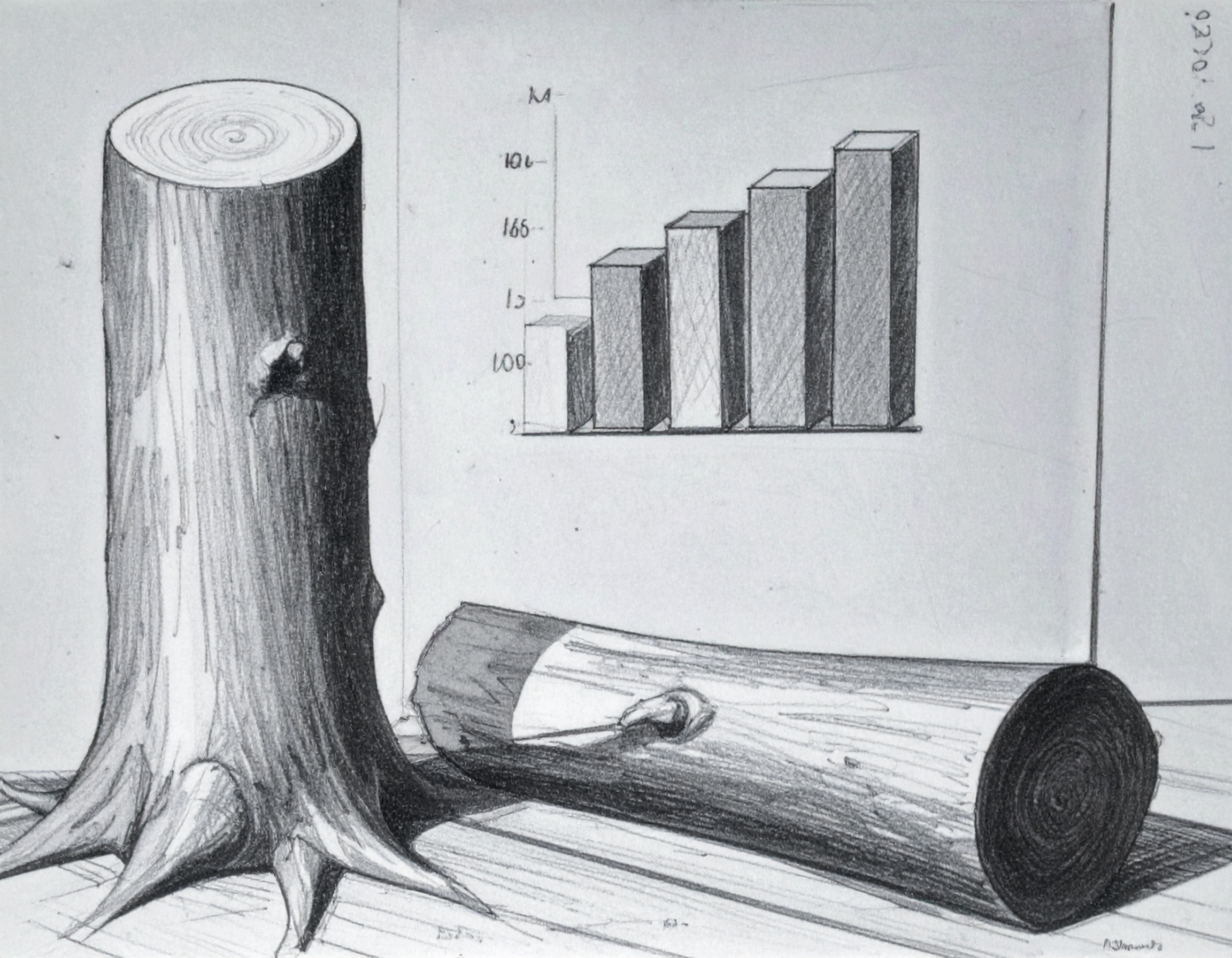
The online Joint Forest Sector Questionnaire (JFSQ) Introduction and Peer Exchange Workshop brought together national focal points and members of the Team of Specialists on Forest Products and Wood Energy Statistics. UNECE and Eurostat presented updates to JFSQ, followed by an interactive Q&A session. The workshop launched a peer exchange programme under the Team of Specialists on Forest Products and Wood Energy Statistics, to foster mentorship and technical collaboration among correspondents. The initiative aims to strengthen national data collection and reporting practices, enhance methodological exchange, and support the quality and consistency of JFSQ submissions.
For more information: here

In the framework of the Trees in Dry Cities Coalition, the Third episode of the Water Webinar Series will take place on September 29 at 3:00 PM CEST. This session will focus on strategies for creating green corridors and urban forests in cities where water is scarce or must be brought from external sources. Featuring insights from local governments, such as Barcelona and Tucson, and other interested stakeholders, the webinar will highlight innovative approaches to managing water for urban nature in dry contexts. It offers a platform to exchange knowledge, showcase solutions, and foster collaboration among cities and experts working at the intersection of water and urban greenery.
For more information: here

The UNECE Committee on Forests and the Forest Industry invites you to the Market Discussion on Forest Economics and Trade, taking place during first day of its 83rd session in Geneva, 4 November 2025. This year’s theme, will explore the latest market trends, policy impacts, and innovation in the forest-based sector. Participants will gain insights into:
- Current and emerging trends in forest product markets;
- The evolving global trade landscape and its implications for the ECE region;
- The role of innovation in advancing circular bioeconomy strategies.
For more information: here
Publications, Reports...
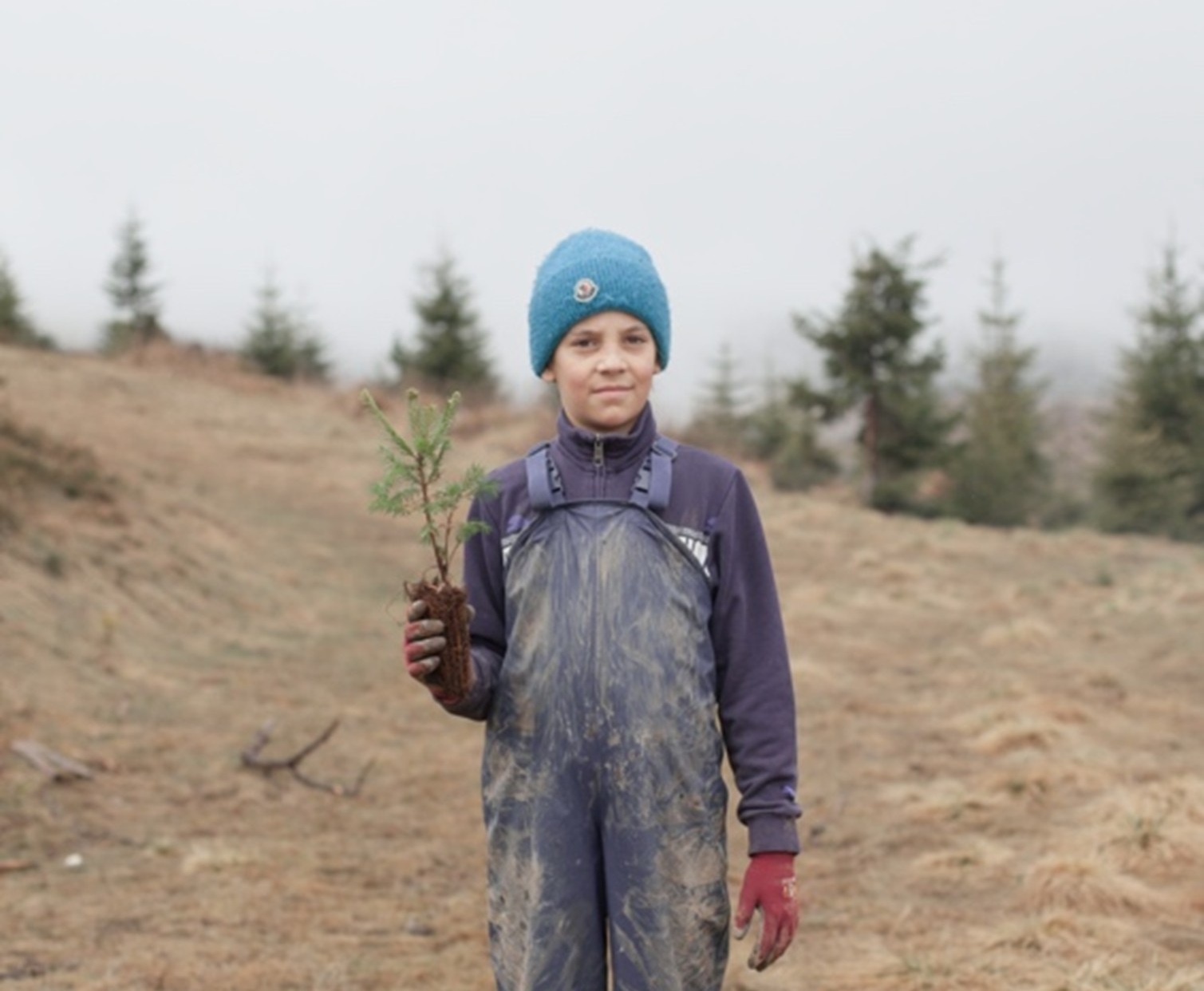
“Our Forest” is a new photographic project created by FSC Italy in collaboration with Magnifica Comunità di Fiemme and the Terra Project photographers collective. Activities, portraits and images explore the deep connection between the Magnifica Comunità di Fiemme and responsible forest management.
A visual journey accompanies the reader in a story of traditions, resilience and future, and invites reflection on the interconnectedness of humans and nature within a single ecosystem. The book will be available through FSC Italy's eshop and Magnifica Comunità di Fiemme's bookshop.
For more information: here
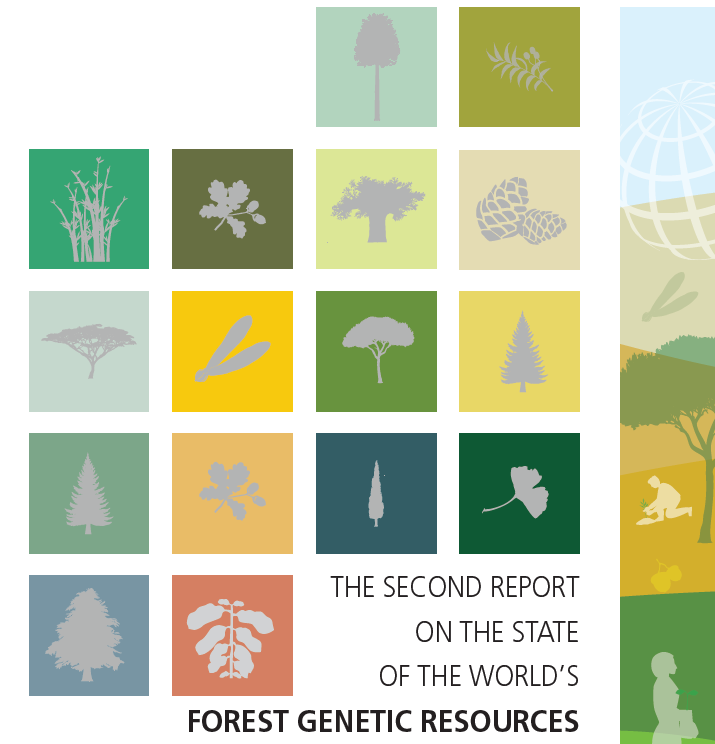
The Second Report on the State of the World's Forest Genetic Resources highlights the crucial role of forest genetic resources for sustainable development and examines progress in implementing the Global Plan of Action for Conservation, Sustainable Use, and Development of Forest Genetic Resources.
Drawing on data and information from 77 countries representing more than three-quarters of the world's forests, this report reviews scientific advances and concludes with recommendations for continued action at the national, regional, and global levels to ensure that forest genetic resources are sustainably managed for the benefit of current and future generations.
For more information: here
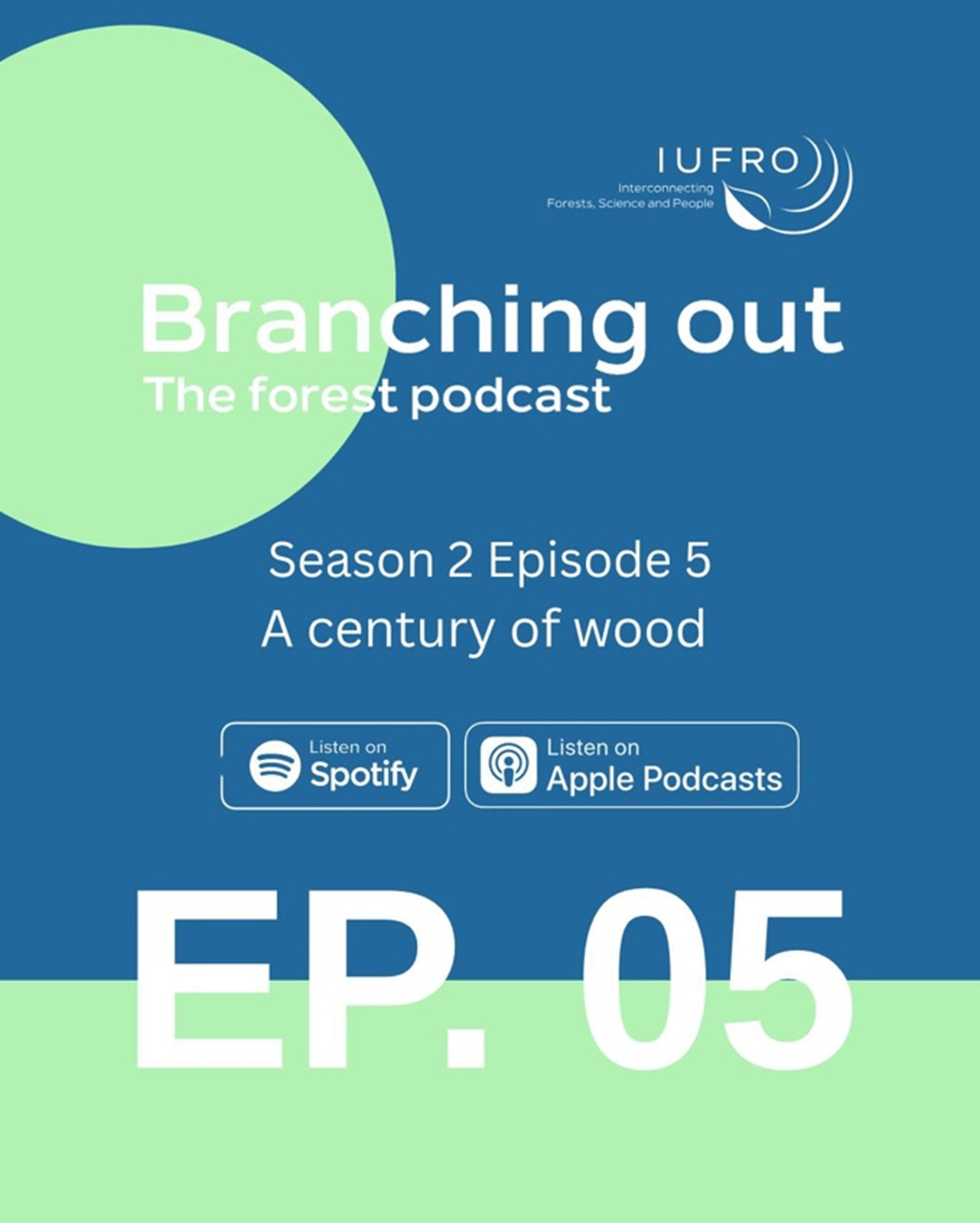
"In A Century of Wood", the latest episode of Branching Out: the forest podcast, host Jose Bolaños speaks with Franka Brüchert and Roger Meder of IUFRO Division 5 about the transformative role of forest products in today’s world.
From traditional timber to innovative materials like beech wood textiles, the episode explores how wood is redefining sustainability, design, and global trade.
With insights into wood identification, market challenges, and the future of forest-based industries, this conversation highlights why timber may become the defining material of the 21st century.
For more information: here
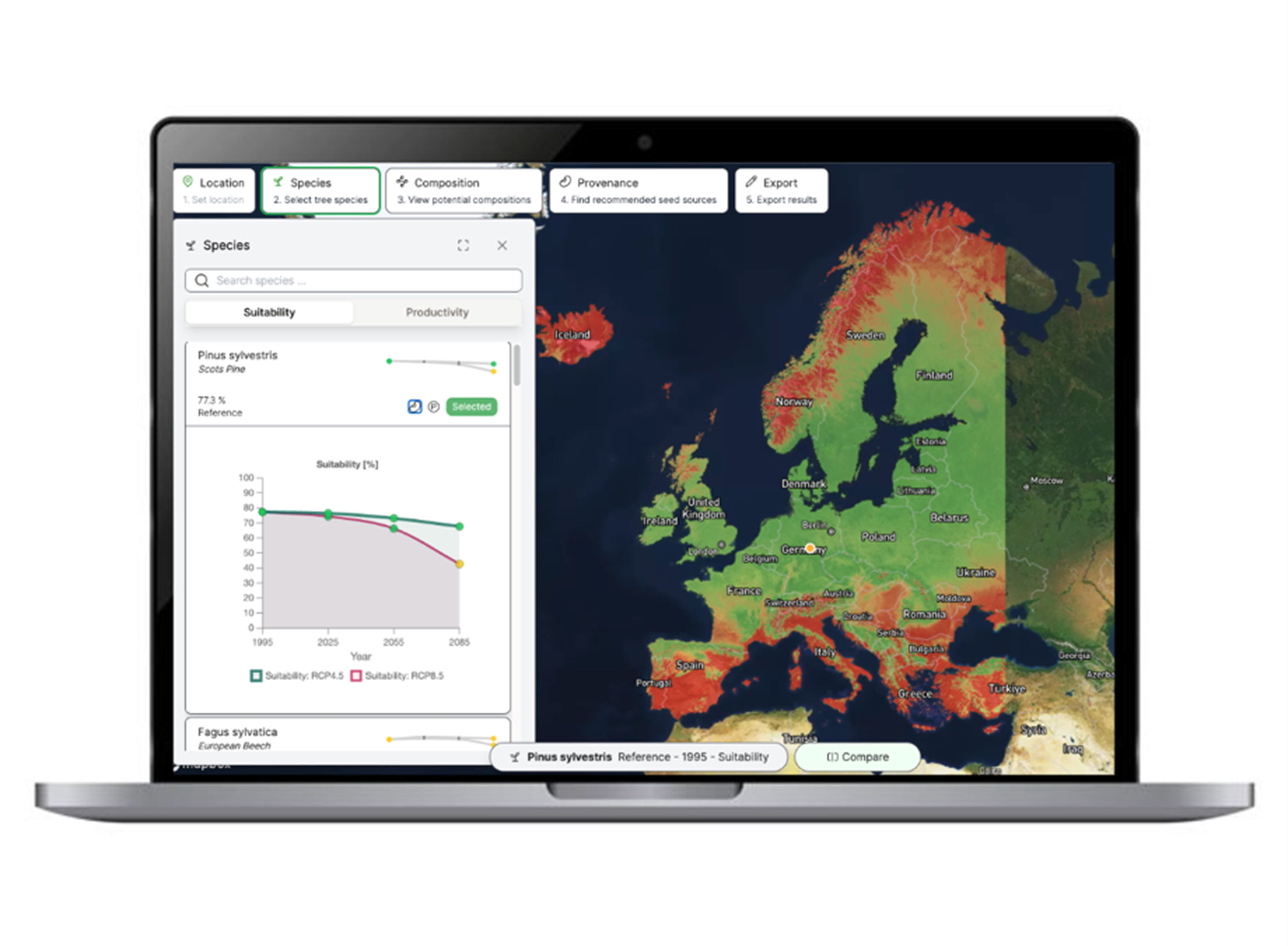
Seed4Forest is an innovative decision-support tool designed to help users select the most appropriate tree species, species mixtures, and provenances for any location across Europe.
At its core, Seed4Forest plays a vital role in forest restoration, reforestation, and afforestation by supporting climate-smart forestry. It combines up-to-date scientific knowledge with practical guidance, helping users implement adaptation strategies that address both current and future climate challenges. Seed4Forest can serve anyone involved in forest establishment seeking clear, science-based decision support.
For more information: here
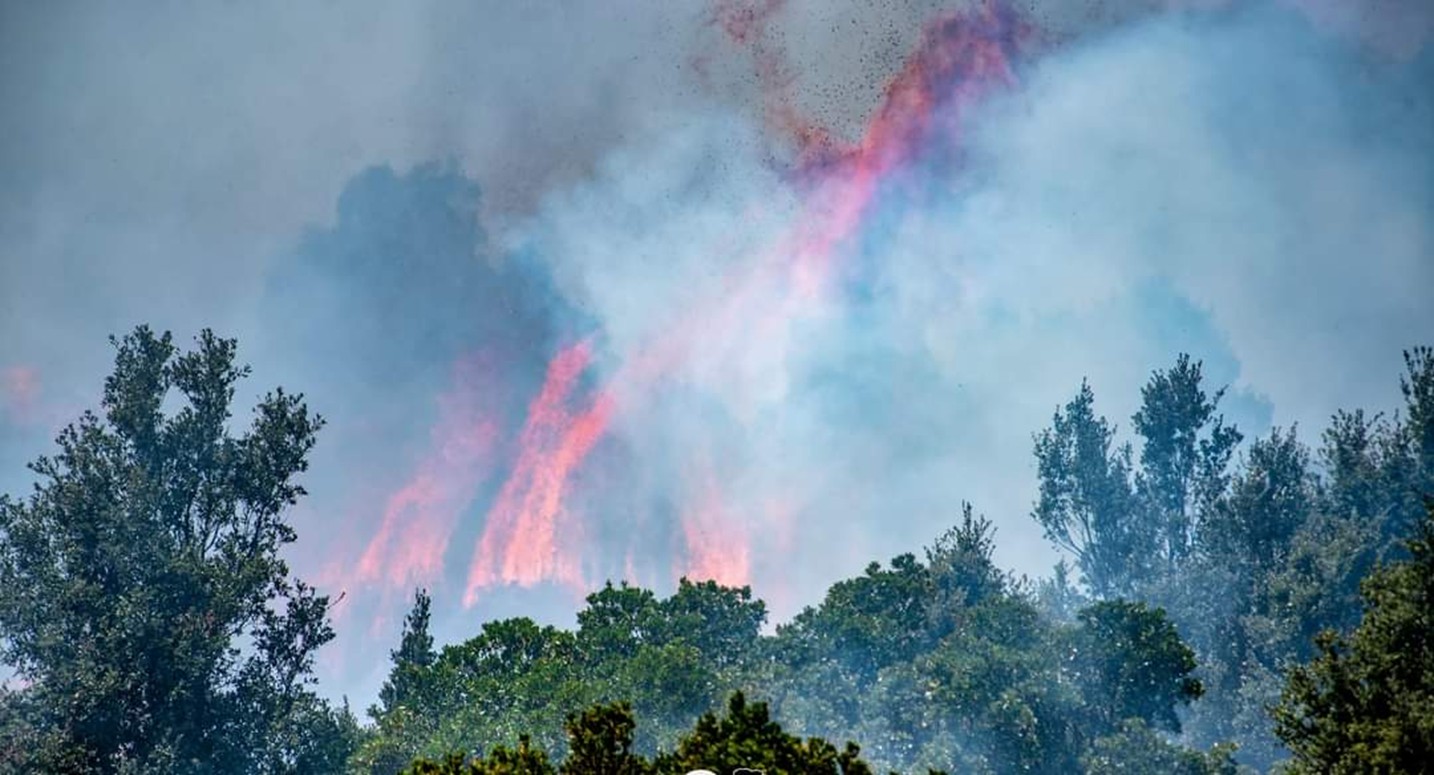
As climate change continues to increase wildfire risks globally, the need for coordinated, science-driven forest management has never been greater. Organizations like EUSTAFOR are at the forefront of ensuring that forests remain healthy, productive, and resilient. Don’t miss this powerful video exploring the crucial role that sustainable forest management plays in reducing the risk and severity of wildfires. It features practices such as vegetation management, proper tree spacing, tree thinning, and promoting resilient species — the essentials in creating forests that are better prepared to withstand and recover from wildfires. Effective forest management reduces the accumulation of flammable materials and supports ecosystems that are more resilient to climate change. For more information: here
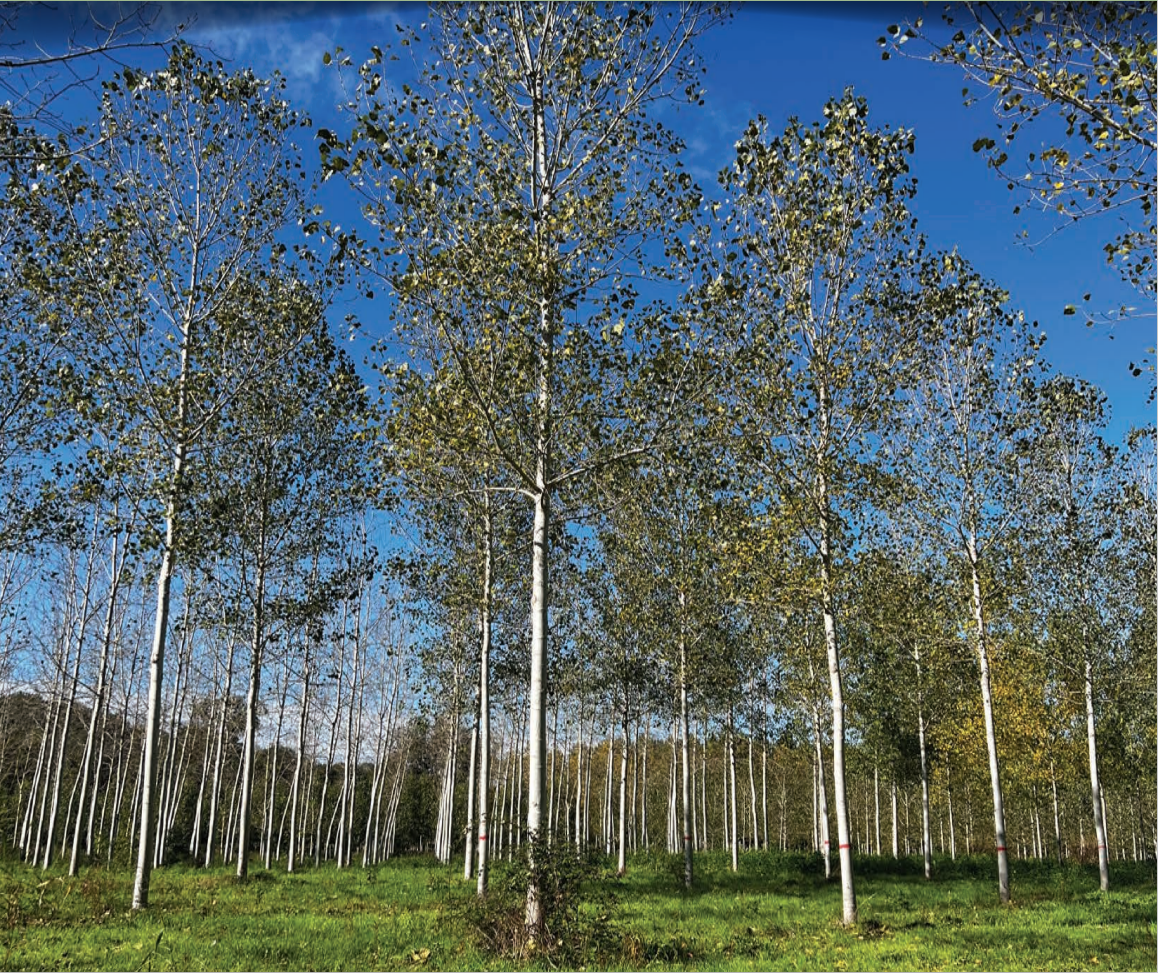
Fast-growing trees (FGTs), intensively cultivated for productive purposes, have been developed and used for millennia to provide wood and non-wood products to rural communities, as well as direct and indirect benefits to urban societies.
This publication addresses knowledge gaps and the current and potential development of FGTs at the global scale by highlighting successful, innovative FGT practices that can help sustain people and the environment.
For more information: here
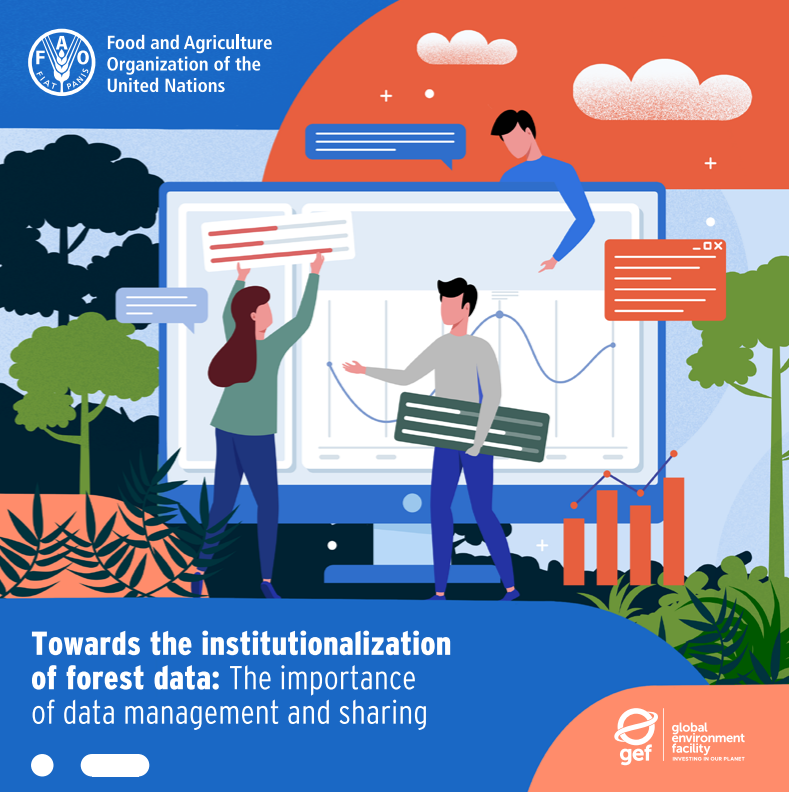
This publication explores how countries can improve forest data governance by institutionalizing data management and sharing within national forest monitoring systems (NFMS).
It highlights the importance of high-quality, accessible data for informed decision-making, sustainable forest management and climate action.
Through practical examples from Uganda, Ghana, Costa Rica, and others, it outlines key steps to strengthen coordination, adopt digital tools, and ensure data transparency and protection.
For more information: here
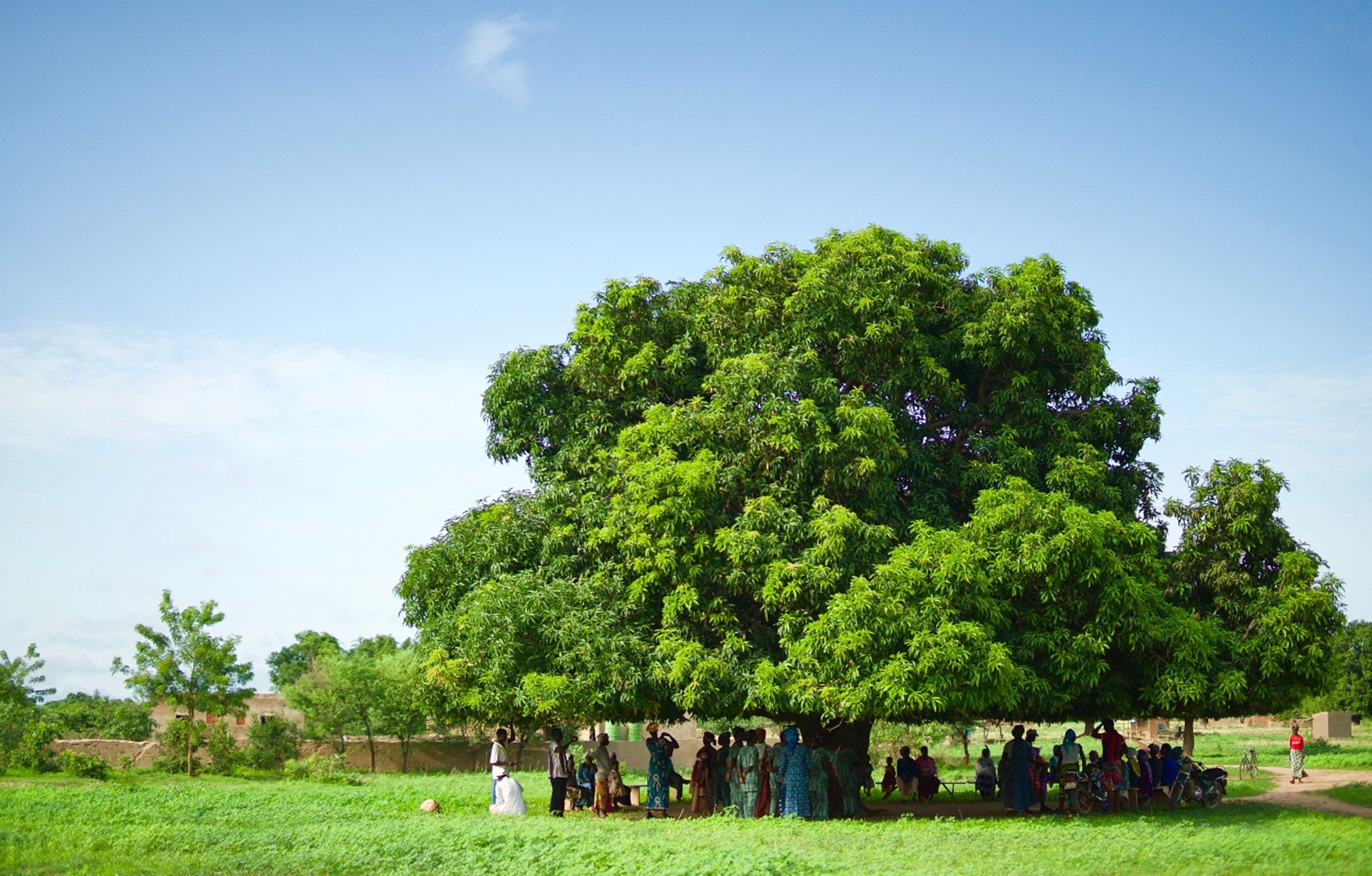
IUFRO just published a new report, developed by a team of 22 internationally recognized scientists from varied professional backgrounds and geographical contexts under the Global Forest Expert Panels (GFEP) Initiative of the Collaborative Partnership on Forests (CPF).
The report explores how forests contribute to social and economic resilience in the face of disturbance and change, and how societies can, in turn, support and steward resilient forest systems.
For more information: here
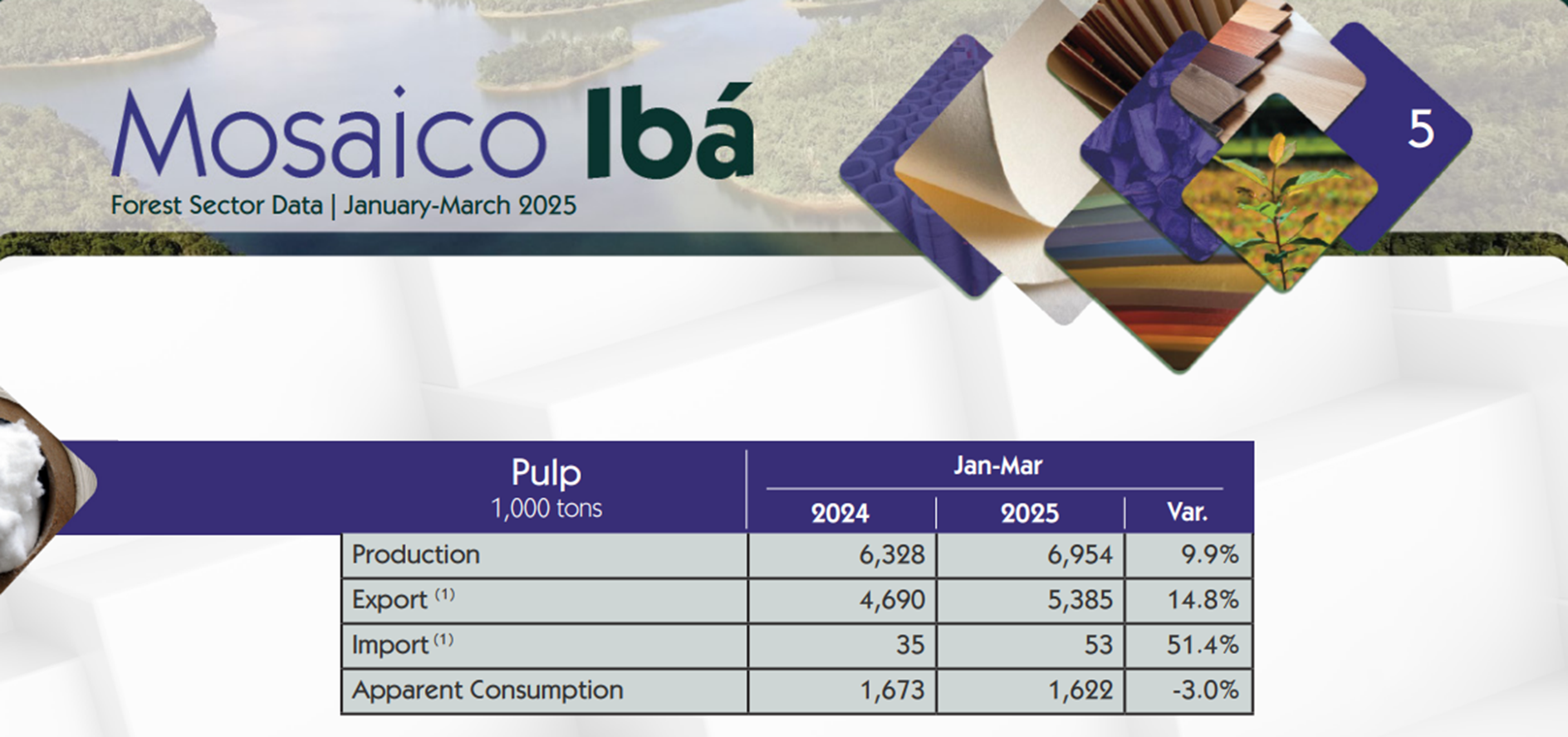
According to the latest edition of Mosaico Ibá*—a quarterly bulletin produced by the Brazilian Tree Industry (Ibá)—the trade balance of Brazil’s cultivated tree sector grew by 16.9 per cent in the first quarter of 2025 compared to the same period in 2024, reaching a record US$3.73 billion.
For more information: here
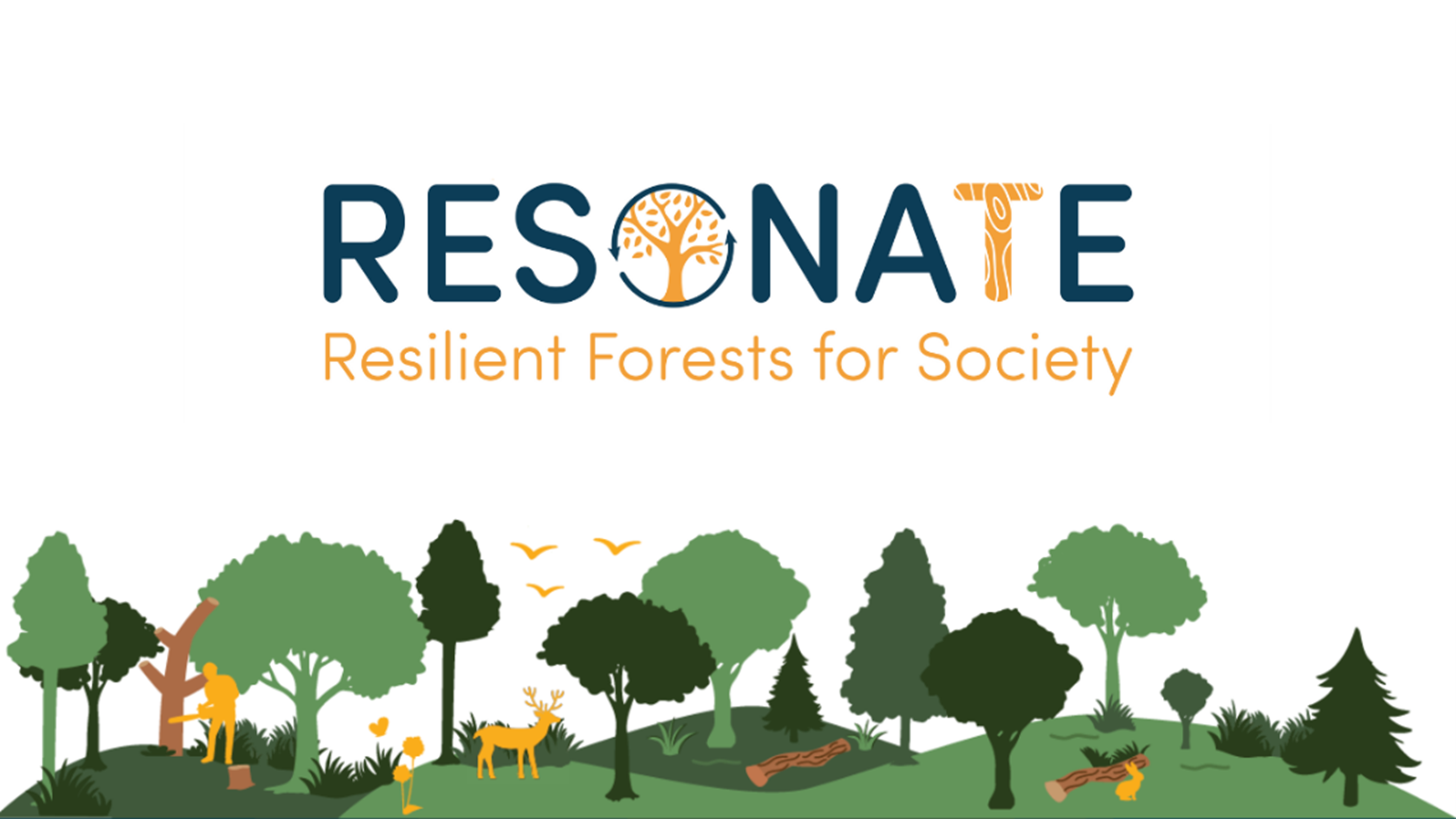
As climate change and other pressures grow, understanding how forests recover from disturbances is crucial. A new study from the EU Horizon-funded RESONATE project reviewed over 300 scientific papers to identify factors that support forest resilience.
The findings show that biodiversity matters most —especially forests with a mix of species and natural, non-planted areas. While forest management can help (like planting diverse trees or using selective cutting), local conditions make a big difference. The study highlights the need for a tailored approach that protects and restores biodiversity in order to help forests adapt in a fast-changing world.
For more information: here
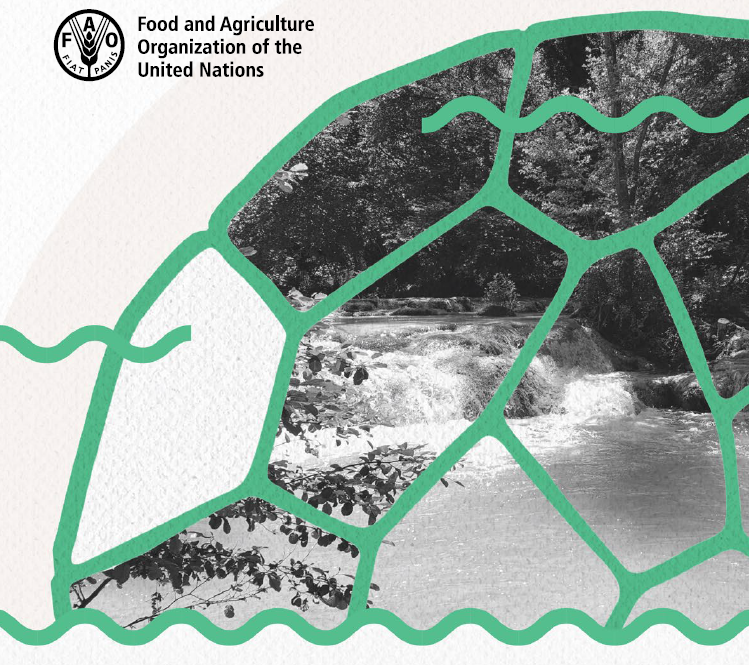
This publication provides guidance for reporting on the restoration of freshwater (inland water) ecosystems under Target 2 of the Kunming-Montreal Global Biodiversity Framework. It introduces a definition of “area under restoration” tailored to the unique characteristics of freshwater ecosystems and outlines key considerations for monitoring restoration efforts.
By promoting consistent and coherent reporting, the guidelines aim to support countries in tracking progress, enhancing ecological outcomes, and ensuring that these critical but often overlooked ecosystems are effectively restored and maintained.
For more information: here

“How can we manage forests for a future we can’t fully predict—and without data from that future?”—In this episode of Branching Out, Bianca Eskelson and Don Hodges, IUFRO Division 4 Co-Coordinators, explore how modeling, remote sensing, and AI help forecast forest dynamics.
From LiDAR mapping to causal inference, they explain how researchers bridge current observations with future possibilities. While data informs the models, local knowledge and human judgment remain essential. With a new IUFRO task force on AI in forestry, Division 4 is leading efforts to turn big data into actionable insights for forests.
For more information: here
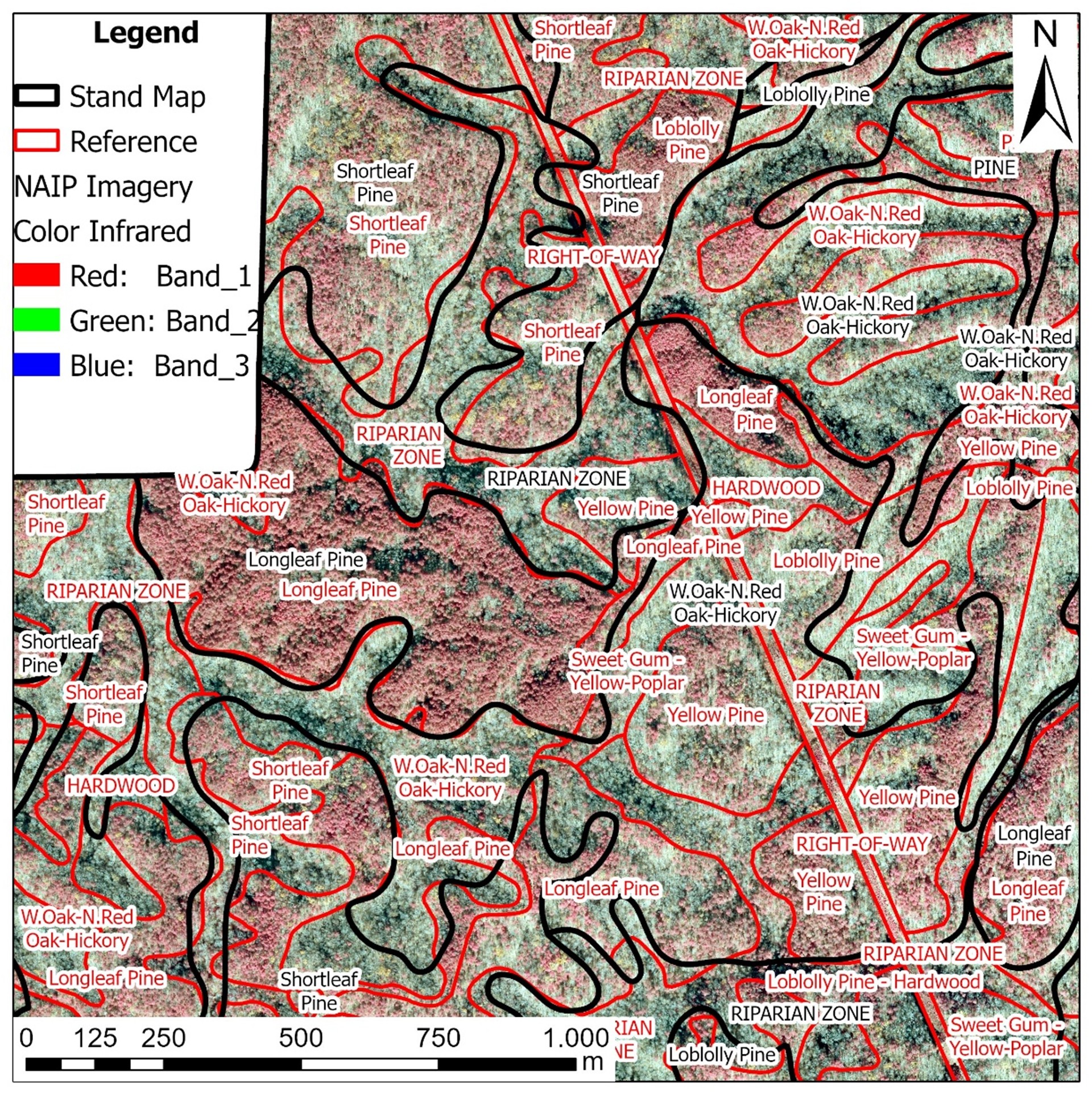
A recent study, “Semi-Automatic Stand Delineation Based on Very-High-Resolution Orthophotographs and Topographic Features: A Case Study from a Structurally Complex Natural Forest in the Southern USA,” has been published as an open-access paper in “Forests”.
The study explores automating the forest stand delineation process, which has traditionally been manual and time-consuming due to its heavy reliance on human interpretation.
For more information: here
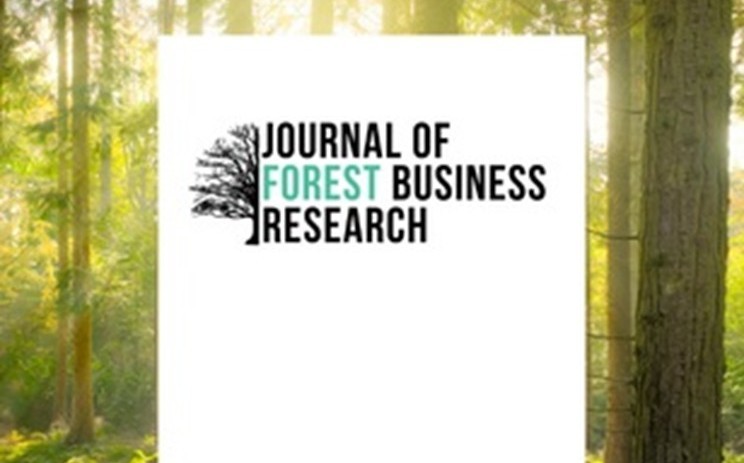
Published in the Journal of Forest Business Research, this research paper found that forest restoration in low- and middle-income countries faces significant investment challenges, as only a limited portion of degraded forestland meets the conditions for private investment.
To scale up restoration, strong public-sector support and targeted policy interventions are needed to improve investment conditions.
For more information: here
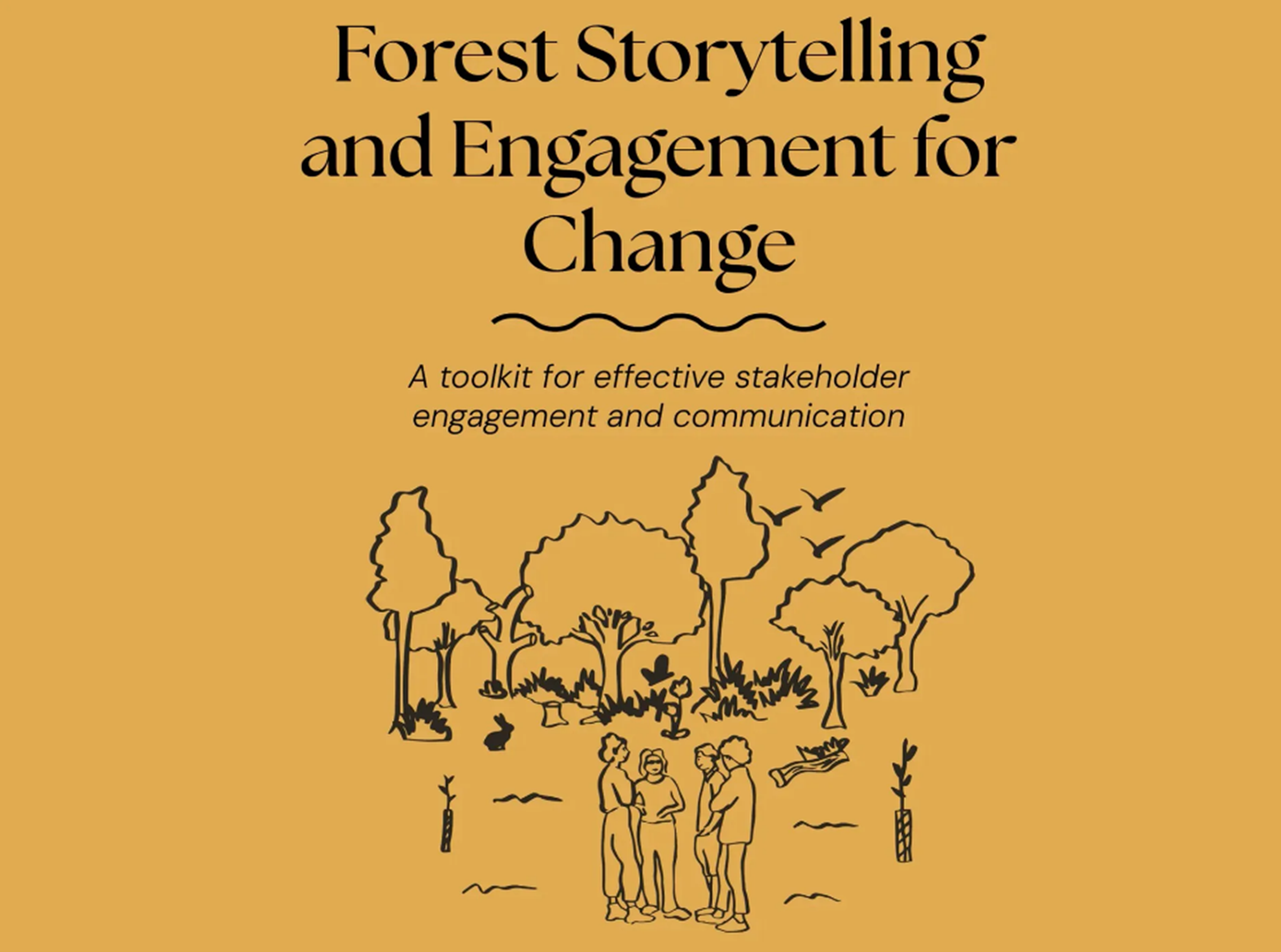
The EU Horizon-funded SUPERB project launched a free, practical toolkit —Forest Storytelling and Engagement for Change —to support forest restoration and biodiversity efforts using the power of storytelling. Developed by the European Forest Institute, King’s College London, and Prospex Institute, the guide offers step-by-step tools to help practitioners, communities, and policymakers engage diverse groups, build stronger connections to forests, and inspire local action. Designed with real-world challenges in mind, it’s made for those with limited time and resources. The toolkit helps make restoration more inclusive, collaborative, and grounded in people’s lived experiences.
For more information: here
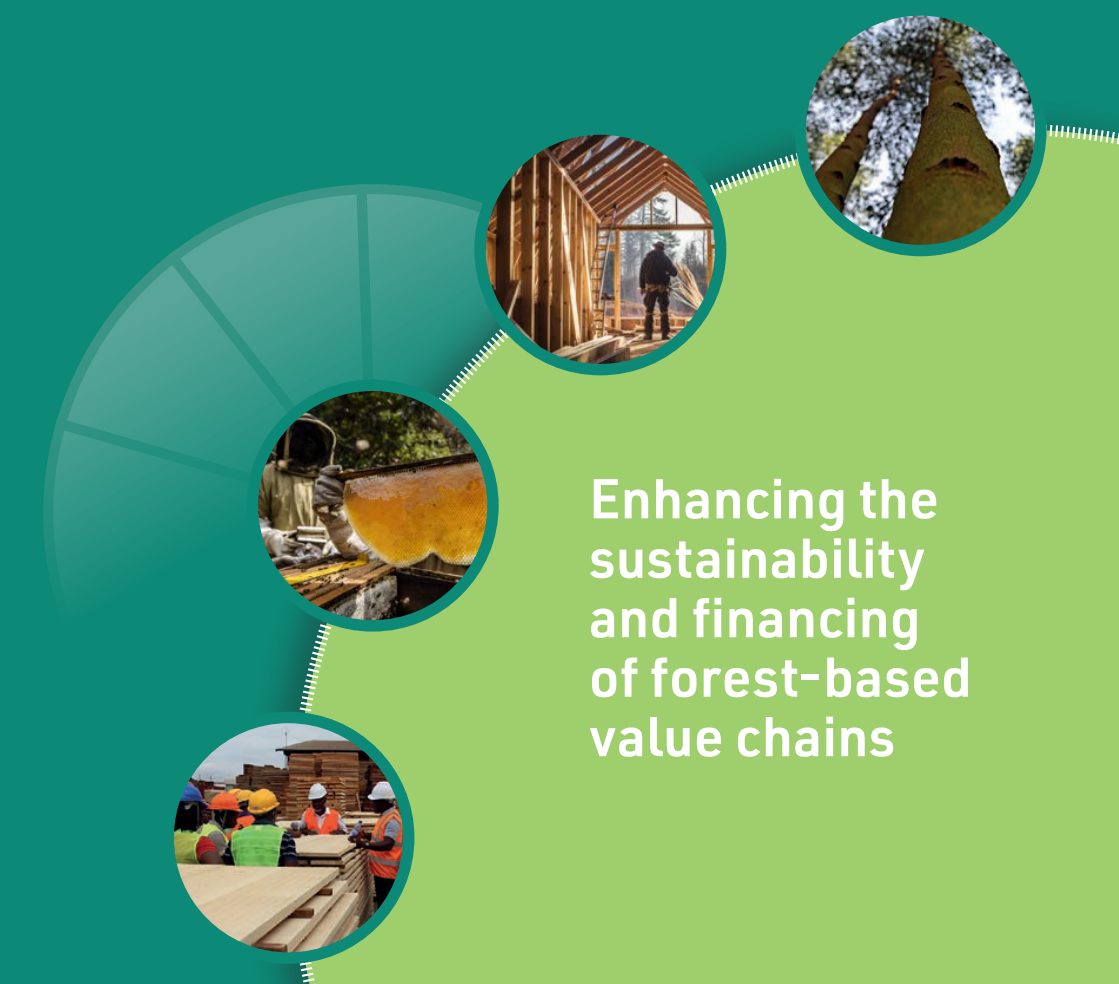
Designed for a diverse audience including project developers, policymakers, private sector operators, and finance sector stakeholders, the document provides practical guidance on designing and carrying out value chain analyses, choosing and designing upgrading interventions, and financing them.
For more information: here
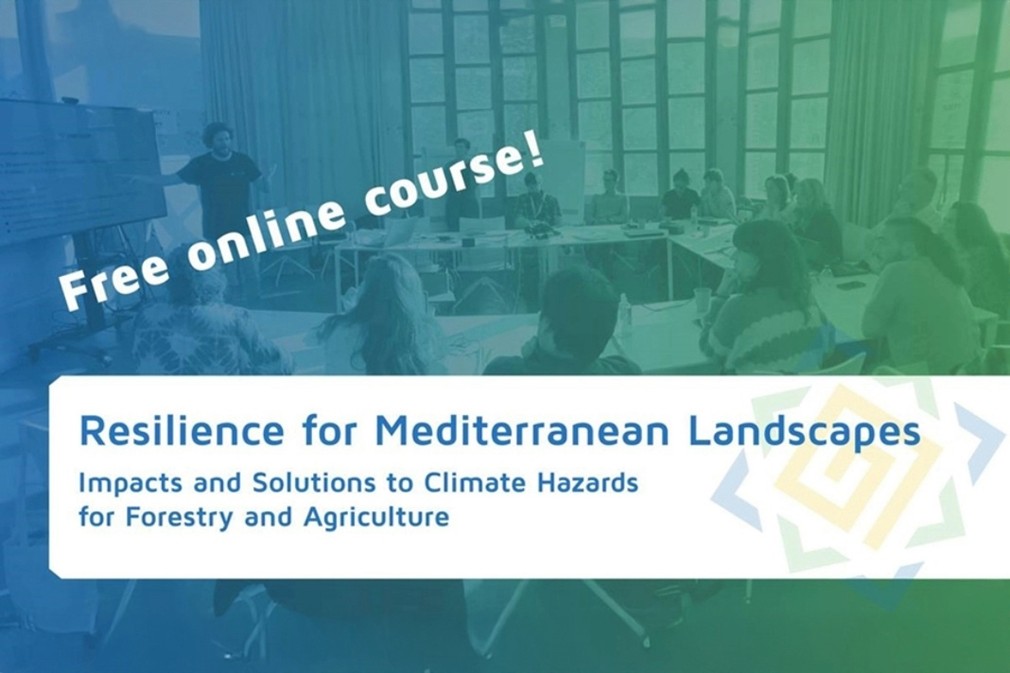
The ResAlliance project has launched a free online course, Resilience for Mediterranean Landscapes, to address climate challenges such as drought, wildfires, and land degradation. Aimed at forestry and agriculture professionals, the MOOC offers practical tools, theoretical insights, and real-world case studies to support climate-resilient land management. Rooted in resilience thinking, the course promotes adaptive strategies, biodiversity, and inclusive governance. With over 300 participants from 48 countries to date, it fosters cross-border collaboration and peer learning. This initiative marks a strategic step towards sustainable, multifunctional Mediterranean landscapes. Enrol now and be part of a growing international community! For more information: here
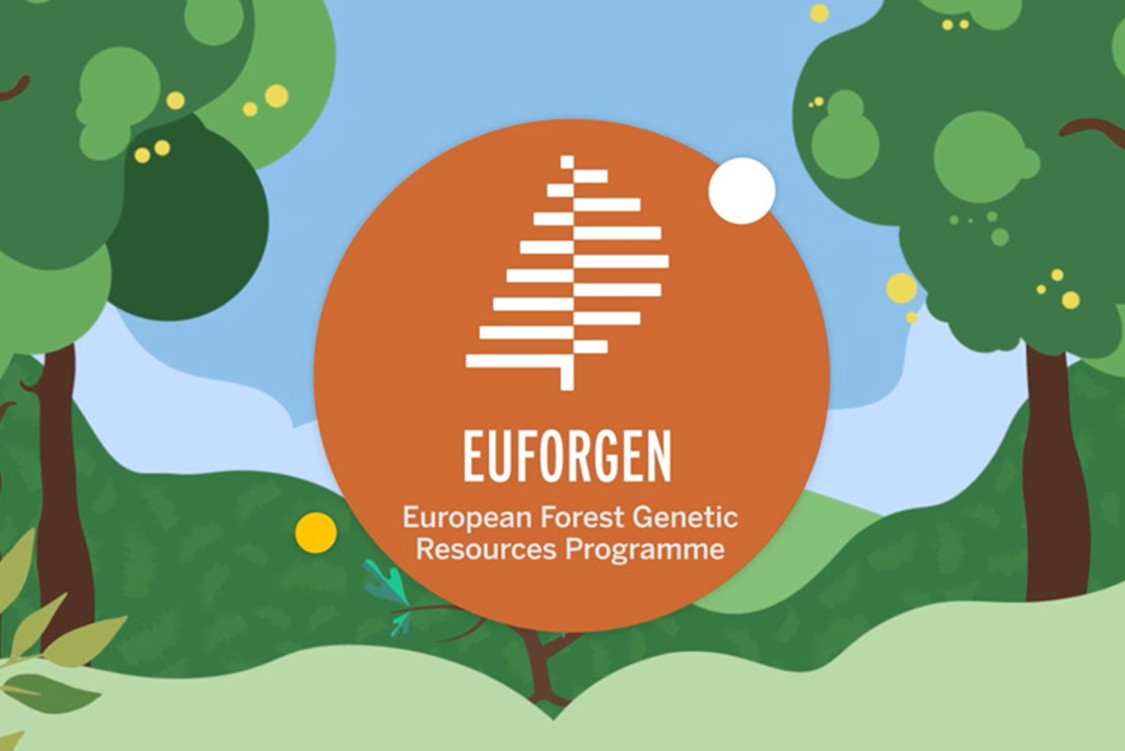
EUFORGEN is celebrating 30 years of collaboration, innovation, and impact with a new animated video highlighting its achievements in conserving forest genetic resources across Europe.
Since 1994, the programme has supported 41 countries, developed technical guidelines, launched the EUFGIS information system, and introduced key monitoring indicators and strategies. Its efforts were recognised at the 9th Forest Europe Ministerial Conference for enhancing forest resilience held in 2024. The video reflects on EUFORGEN’s legacy and ongoing commitment to healthy, adaptable forests for future generations.
Watch the video and celebrate this milestone: here
Forest community
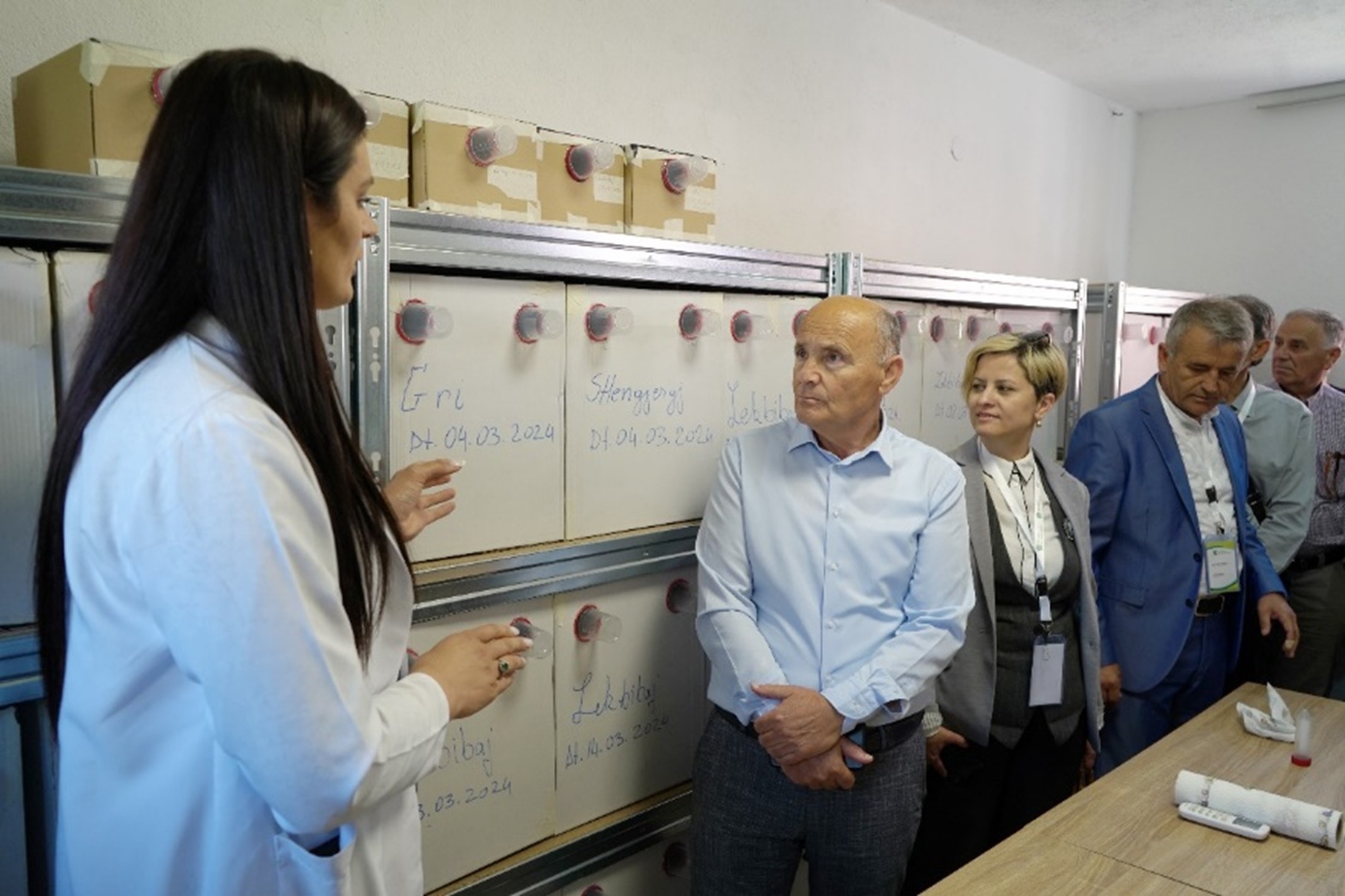
In Tropoja, Albania, a new biological pest control initiative is underway to combat the invasive chestnut gall wasp (Dryocosmus kuriphilus), a pest that has halved local chestnut production. Spearheaded by biologist Mirjeta Imeraj and a dedicated group of women, the project is focused on breeding Torymus sinensis, a beneficial insect that naturally preys on the gall wasp. These grassroots efforts provide a sustainable and environmentally friendly alternative to chemical treatments. With the backing of the Food and Agriculture Organization of the United Nations (FAO) and local institutions, this project aims to protect vital ecosystems and bolster rural livelihoods in the region.
For more information: here

After a successful 1st call, where 35 organisations from 16 countries have been funded, the SMURF project launched a second Cascade Funding round to distribute up to €825,000 and incorporate at least 40 new forest organisations to drive innovation, sustainability, and profitability in small-scale forestry. Selected organizations will also actively contribute to SMURF’s mission by:
- Establishing pilot projects focused on innovative business models and demonstration stands for close-to-nature silviculture.
- Piloting projects linked to carbon credits.
- Participating in training sessions.
For more information: here
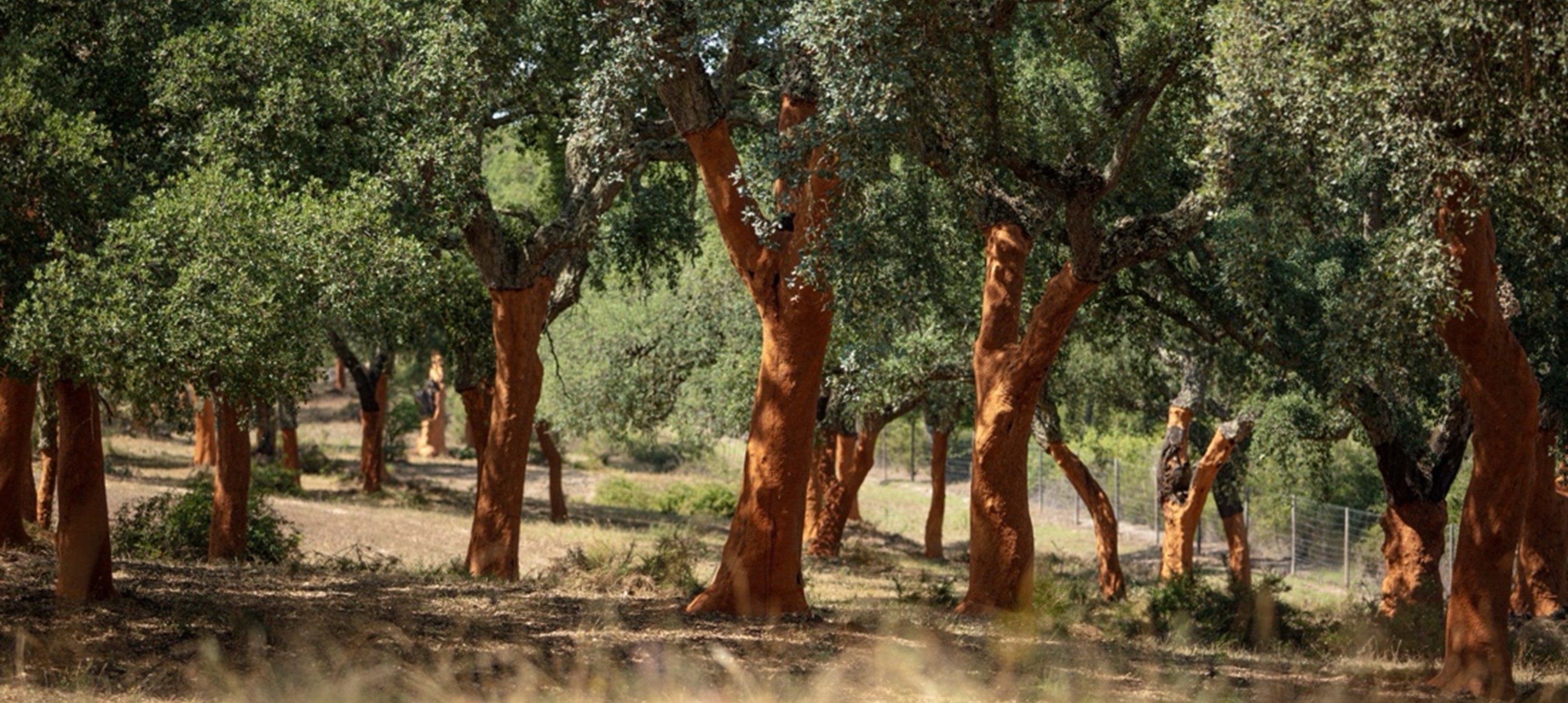
Tucked into Portugal’s rolling landscapes, the Montado —traditional cork oak forests —are more than meets the eye. These working woodlands are actually Natura 2000 conservation sites, safeguarding rare and endangered species as part of a global biodiversity hotspot —one of only 36 worldwide.
While global headlines focus on rainforests, these Southern European ecosystems are fighting their own battle. And the family who manages these lands now faces a question: How do you preserve a living legacy in context of climate change? Their answer lies in treating conservation not as a burden, but as the ultimate inheritance.
For more information: here
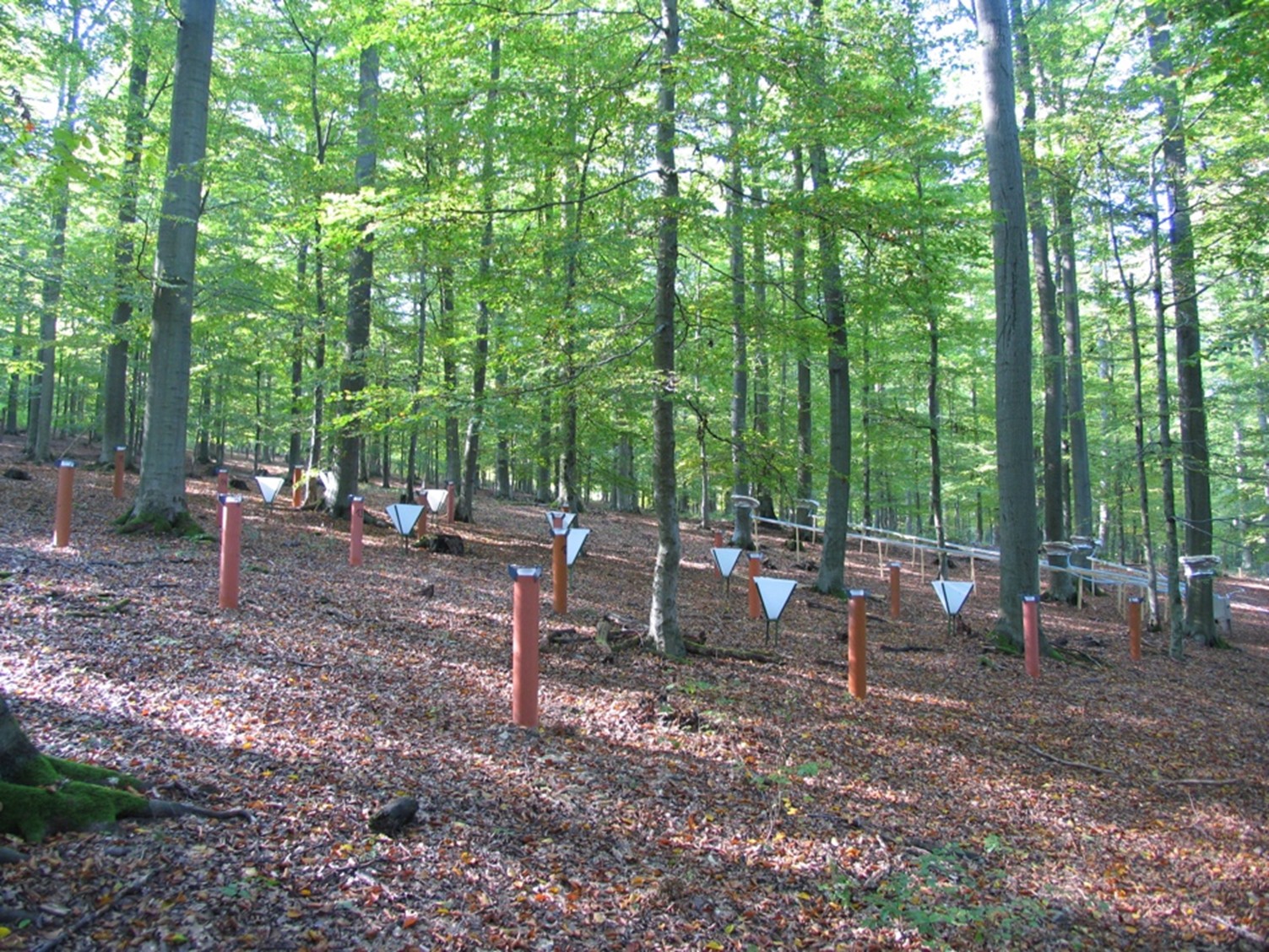
In a time of renewed interest for internationally-based monitoring of European forests, the UNECE ICP Forests is celebrating its 40th anniversary. Launched in 1985, ICP Forests has evolved as a unique monitoring infrastructure participated in by 42 countries.
ICP Forests (i) was successful in tracking the condition of European forest ecosystems and the role of multiple stressors across decades; and (ii) offers a very good example of international co-operation – particularly important in a time of international tensions. ICP Forests demonstrated that international forest monitoring is possible and feasible and offer a valid model for future international forest monitoring.
Central Asia’s unique ecosystems face growing environmental pressures, prompting countries to boost regional cooperation. A major milestone was reached at the Regional Inception Workshop of the “Improving Biodiversity and Sustainable Forestry” project, held on April 8–9 in Ankara under the FAO–Türkiye Forestry Partnership Programme. Representatives from Central Asia, the Caucasus, and Montenegro gathered to launch this initiative aimed at enhancing forest management, biodiversity conservation, and climate resilience. With strong national commitment and regional support, the project promotes capacity building, innovative planning, and cross-country knowledge exchange, laying the groundwork for healthier ecosystems and more sustainable natural resource management across the region. For more information: here
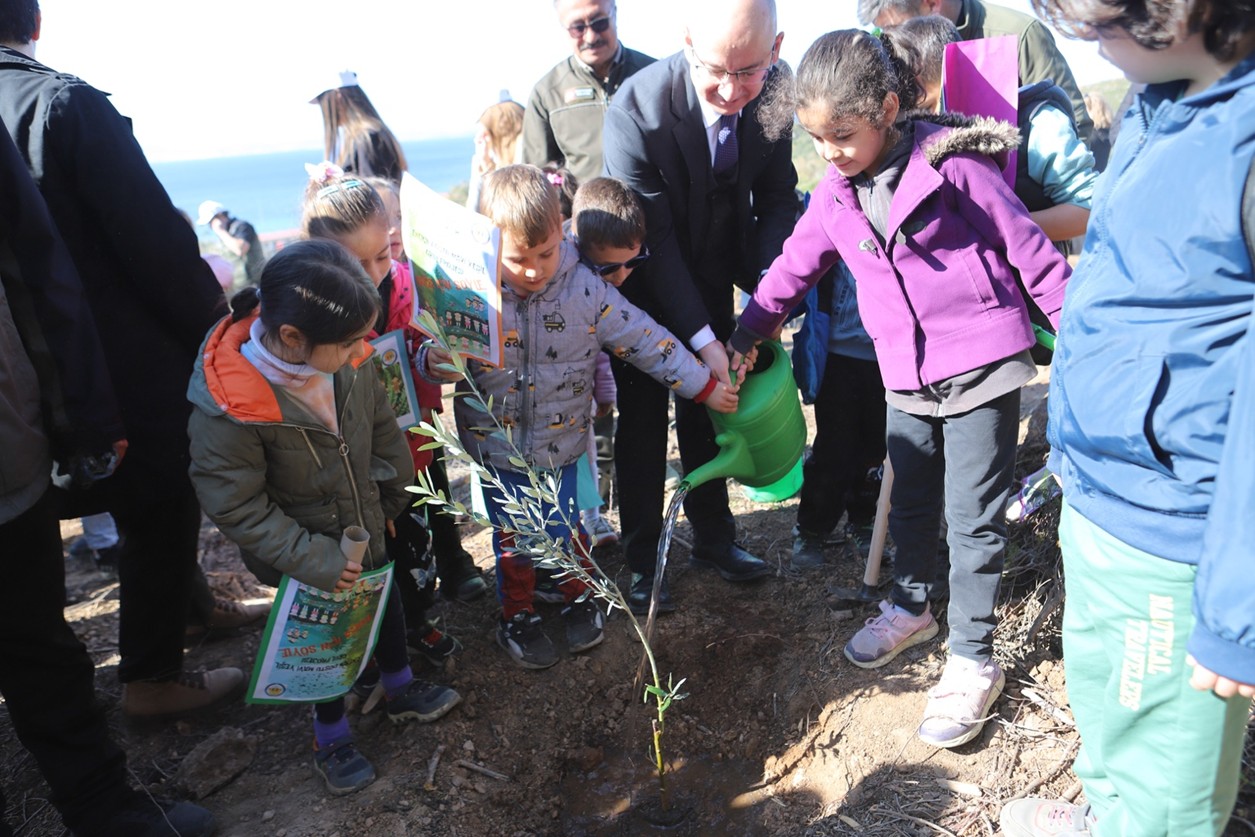
On the occasion of the International Day of Forests, Tohum Association, in collaboration with Yudum Egemden Olive Oils, planted 2,000 olive saplings in Türkiye. Public institutions, students and local cooperatives joined the event.
All rights of use and benefits derived from these saplings have been fully transferred to the local cooperative, supporting rural livelihoods and sustainable land use.
For more information: here
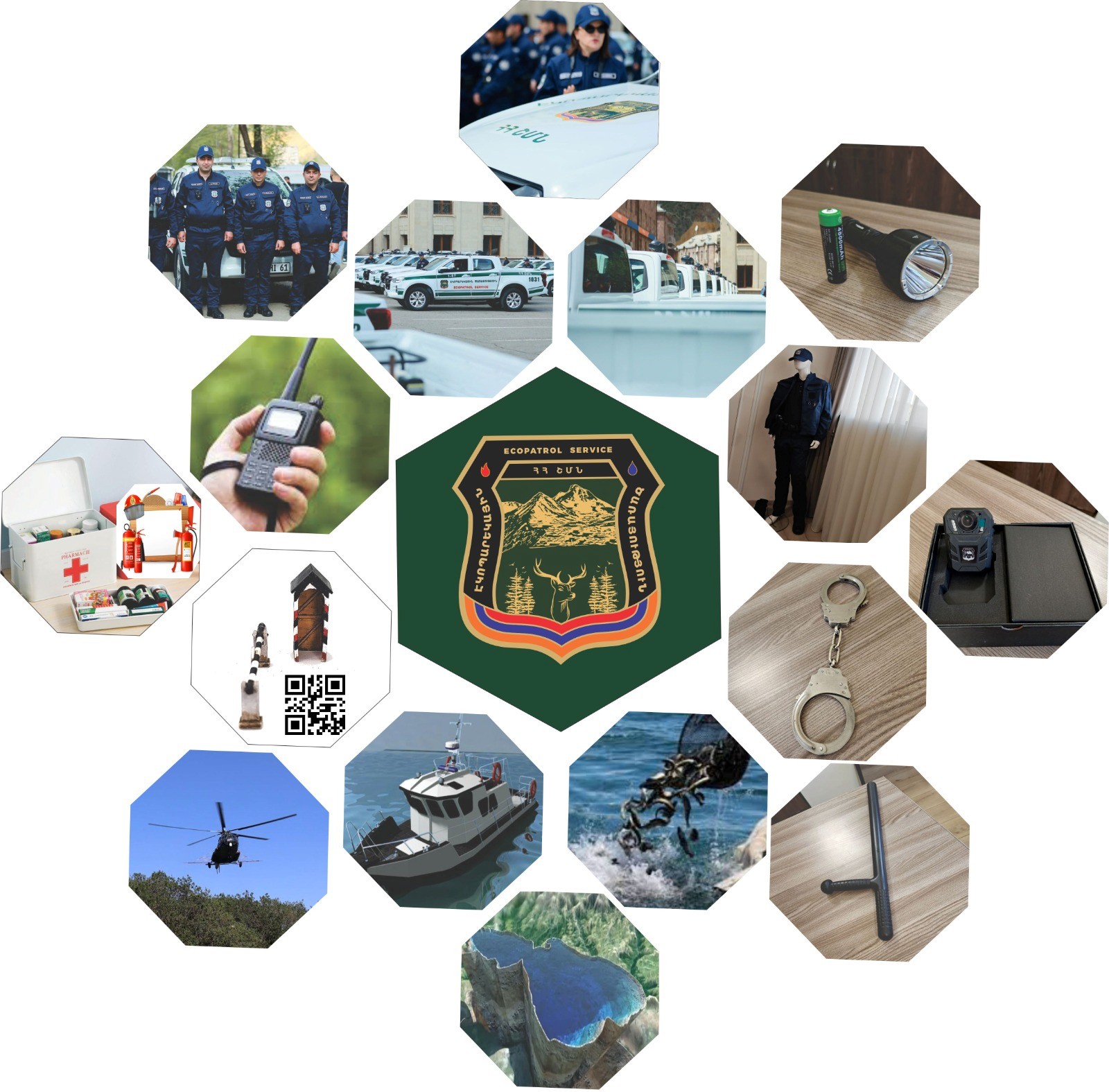
The introduction of the Eco-Patrol Service has brought major advancements to the country's environmental protection toolkit. Noteworthy additions include vehicles with fire-fighting equipment, motorboats, helicopters, and drones (crucial in challenging terrain); sound, motion, and smoke-sensitive sensor systems; video recording devices; radio communication infrastructure; server systems; and uniforms forEco-Patrol officers. Equally significant is the unprecedented development of a comprehensive database designed to organize and control industrial fishing activities for fish and crabs in Lake Sevan. This system integrates the installation of checkpoints at entry and exit locations, electronic scales, GPS devices on water vehicles, and the generation of a QR code. For more information: here
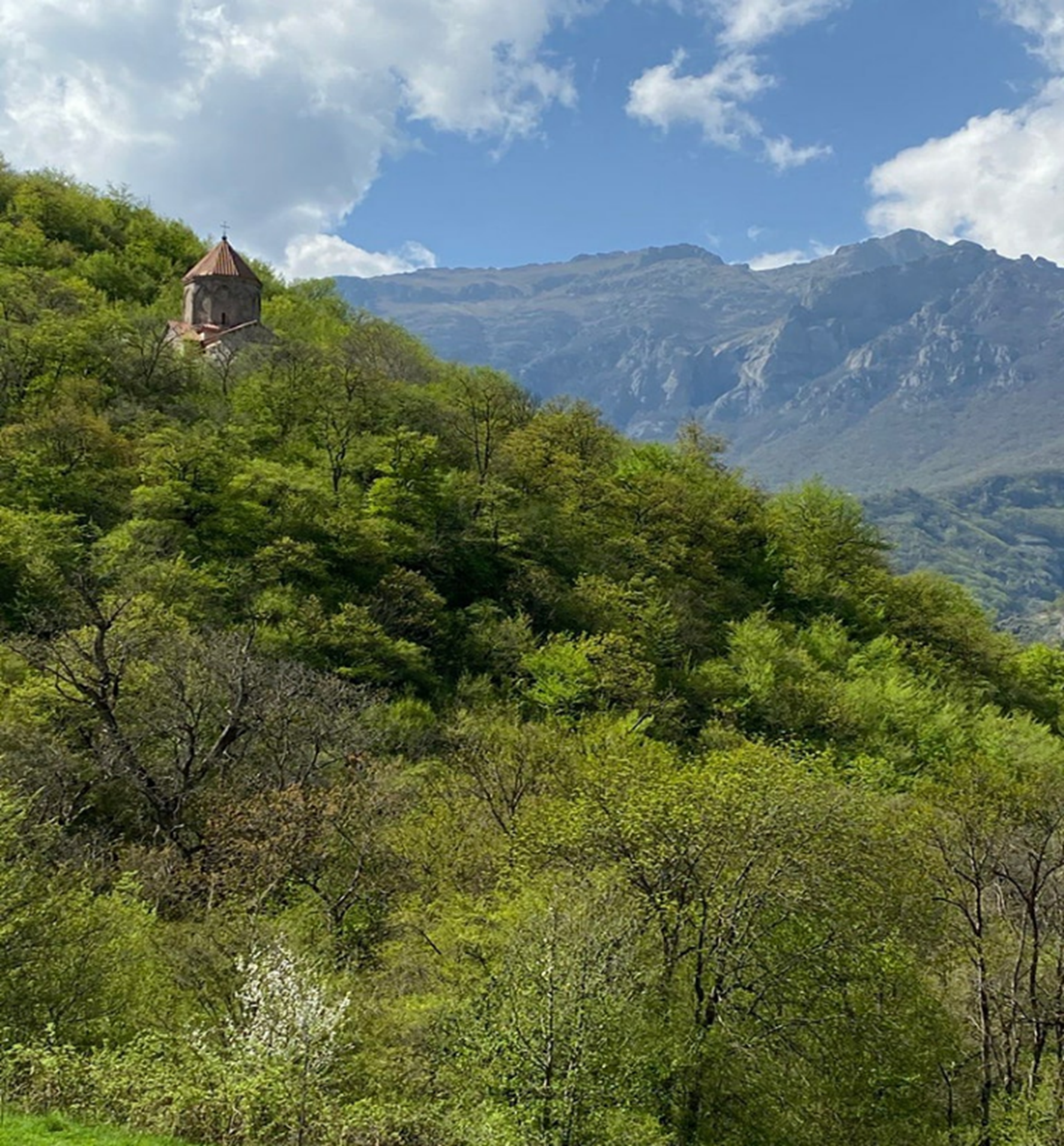
"Hayantar" Organisation operating under the Ministry of Environment of the Republic of Armenia is primarily responsible for the sustainable management, protection, and restoration of the country's forest resources. About 361,385.1 thousand ha of state forest lands are managed by "Hayantar" SNCO and 17 Forest enterprises. To enhance forest restoration initiatives "Hayantar" collaborates with various national and international organizations, including Armenia Forest Alliance, WWF Armenia, and FAO. The organisation also runs educational and community engagement activities, such as tree planting and forest management training for university and school students.
For more information: here
Past Events
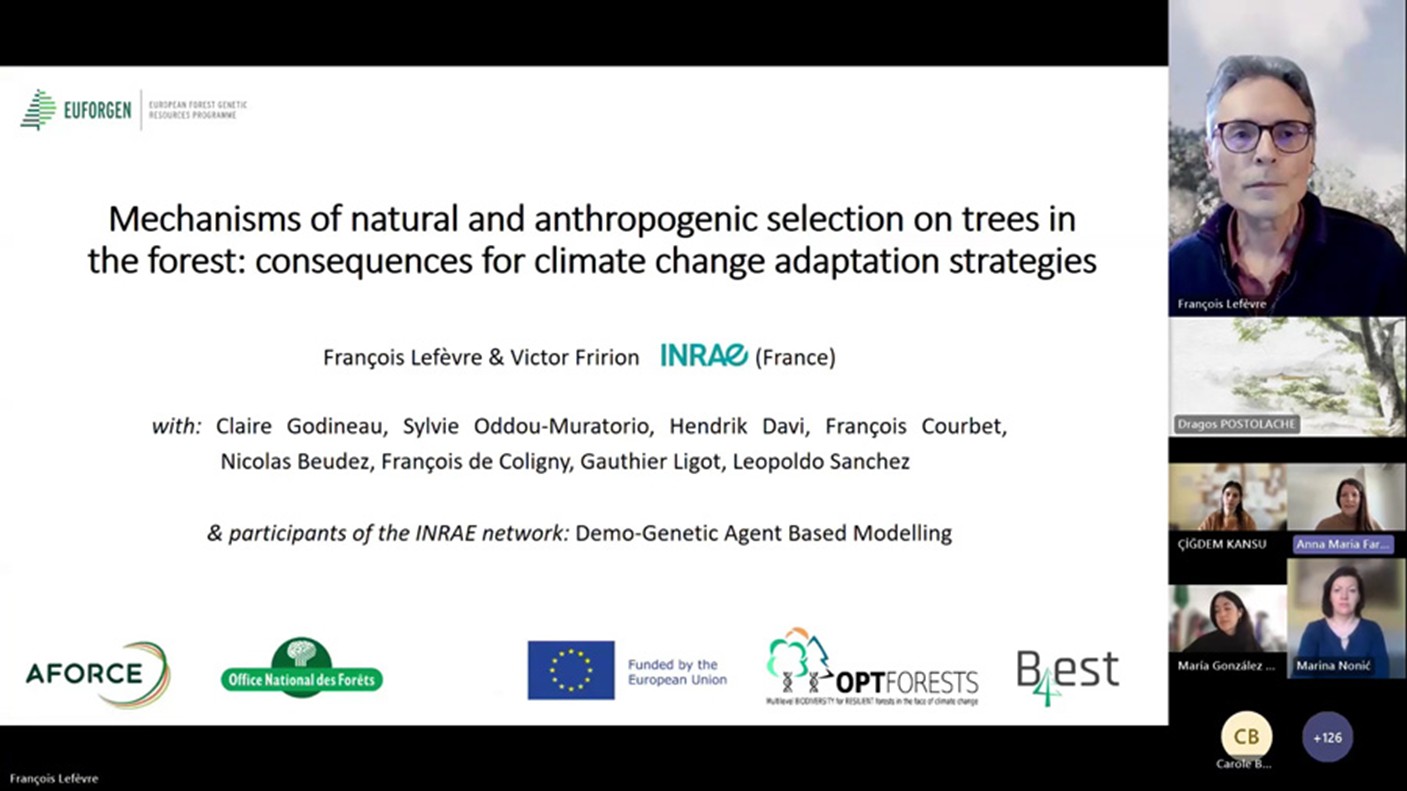
The latest EUFORGEN–OptFORESTS webinar, led by François Lefèvre (INRAE), explored how natural selection and forest management can enhance forest adaptation to climate change. With 150 participants, the session highlighted trees' genetic diversity and their ability to adapt gradually to environmental pressures. Lefèvre introduced the concept of “evolution-oriented forestry,” which employs practices such as thinning to support natural selection without compromising genetic diversity. He also presented simulation tools that help forest managers plan for future challenges, such as drought. The webinar stressed the important role of forest managers as stewards of resilience and genetic diversity.
For more information: here
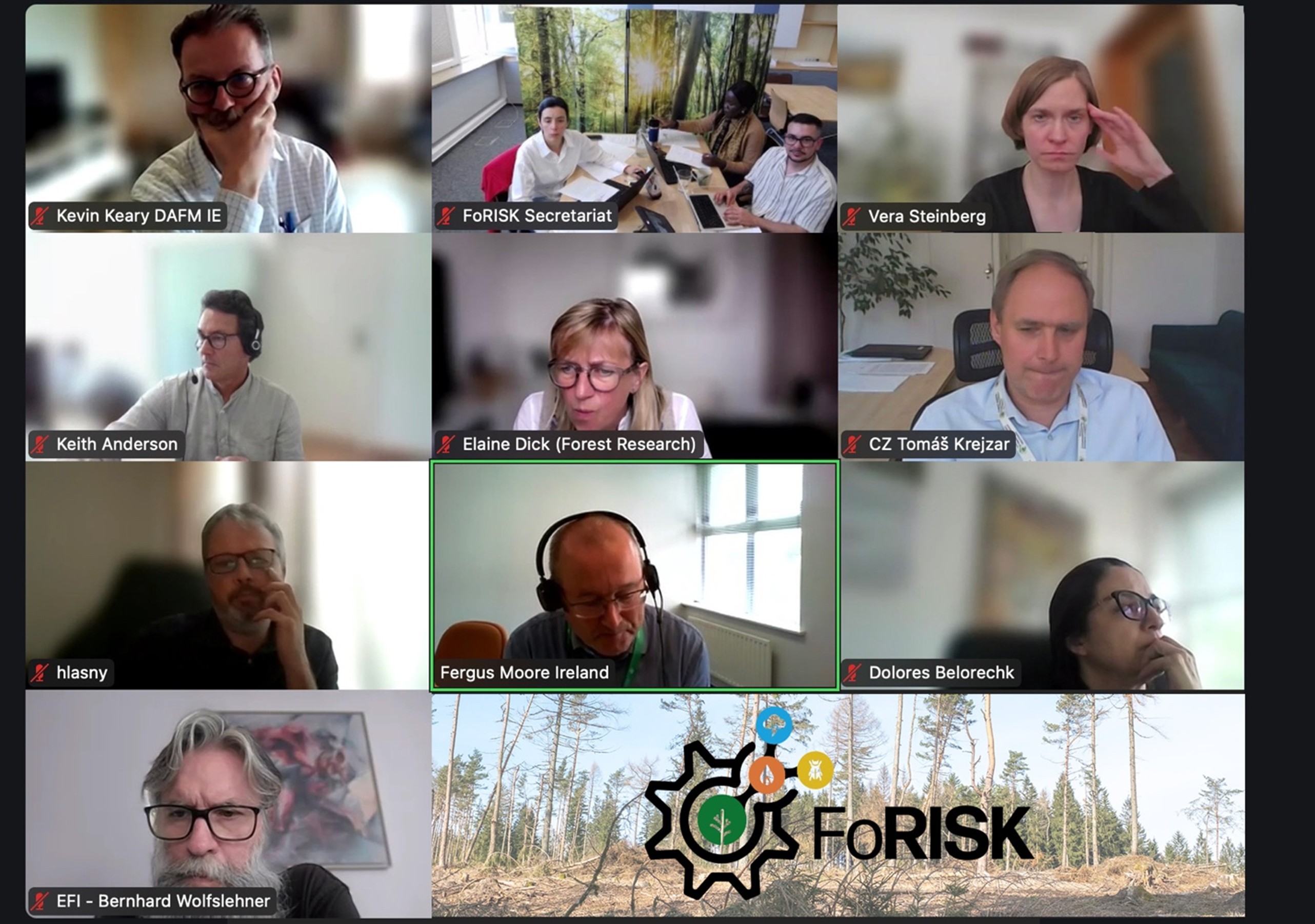
The launch of the Forest Risk Facility marked the beginning of the commitment by pan-European countries to address forest risks such as windstorms, wildfires, and biotic threats. On April 28, 2025, the first kick-off meeting took place virtually. Highlights include: formation of the Steering Committee; setting of strategic goals to guide the future work of the Facility and Governance structure; and establishing collaborations with like-minded stakeholders. An elaborate collaboration example is the Facility’s support for the development of Ireland’s dynamic wind-blow strategy together with the Irish Ministry of Agriculture, Food and the Marine, set to drive innovation and resilience in forest management.
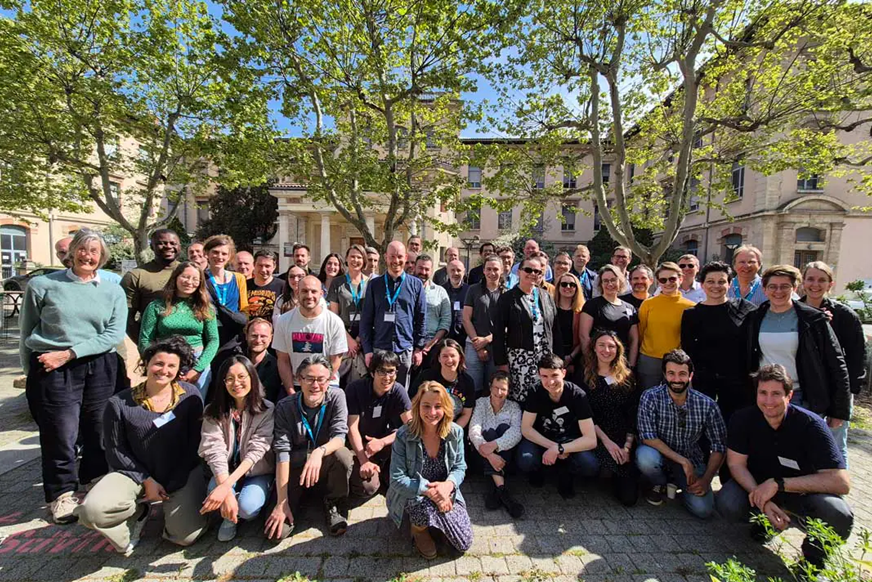
The HoliSoils project consortium met in person for the final time in April 2025 in southern France, as the European Union Soil Monitoring Law advanced to its next stage. Over 50 participants from 20 partner organisations and the project’s advisory board reviewed progress and prepared for the final phase.
Presentations, workshops, and themed sessions highlighted findings that will support healthy forest soils under climate change and disturbance. A field visit to forest research sites and the Haute Provence Observatory closed the meeting. In its final months, HoliSoils is focused on completing tools and practical outputs for forest managers across Europe.
For more information: here
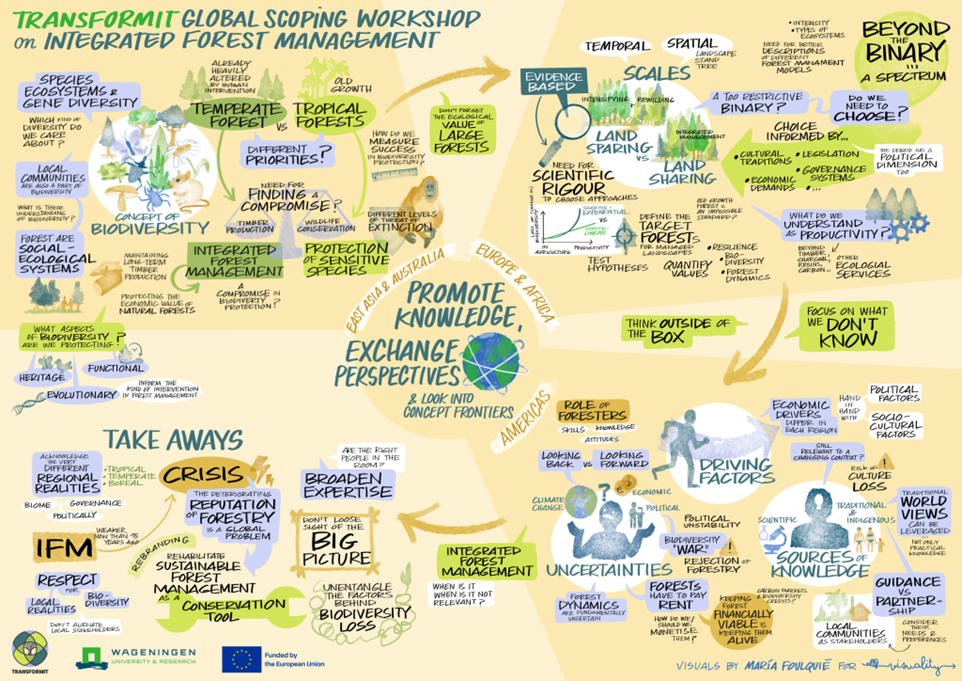
How can biodiversity conservation and wood production be successfully combined in managed forests worldwide —while ensuring financial sustainability?
These crucial questions took center stage at the recent Global Scoping Workshop organized by the TRANSFORMIT project.
The event brought together 35 experts and stakeholders from Australia, Asia, Europe, Africa, and the Americas for a rich exchange of ideas and experiences.
For more information: here
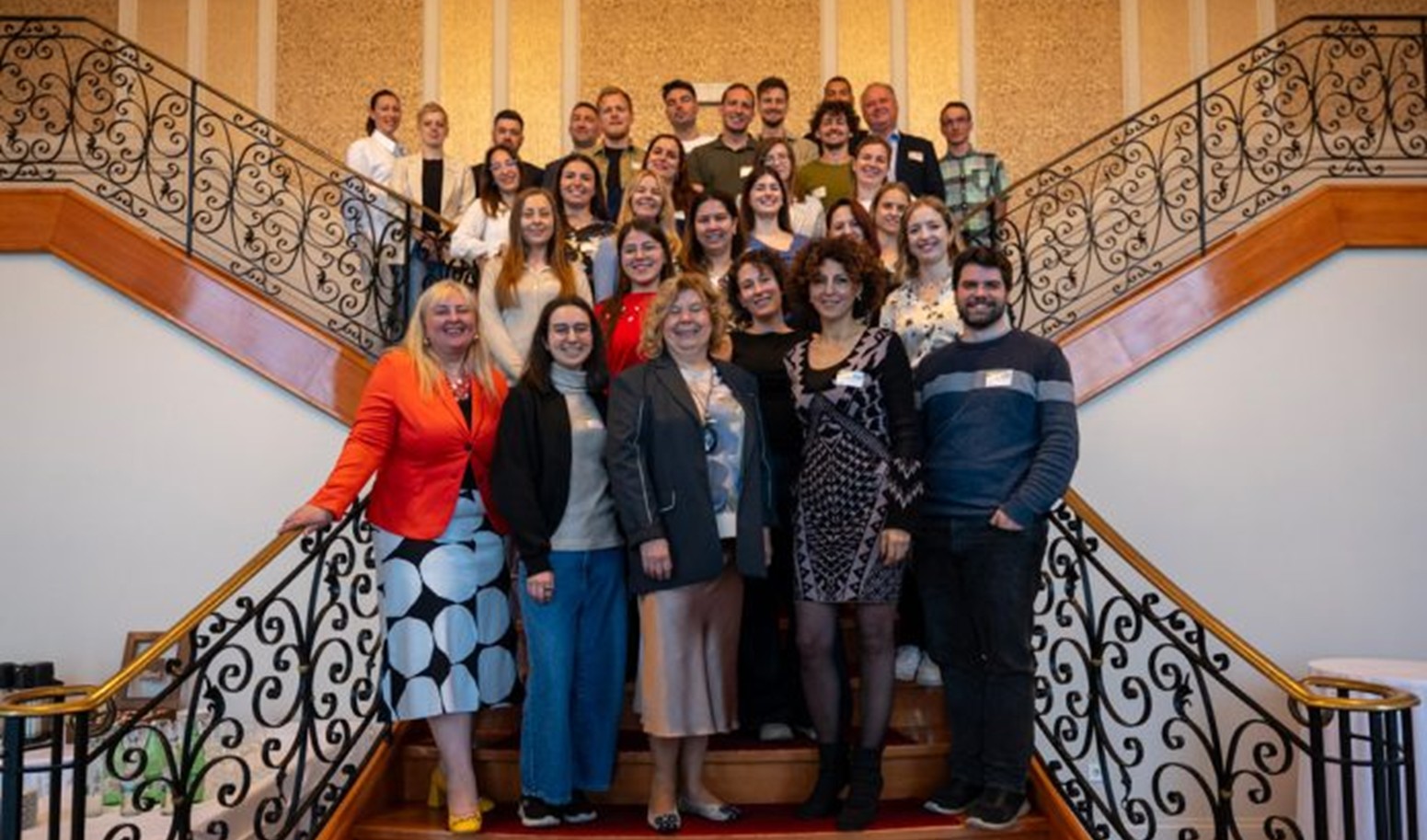
The 2025 edition of the EFI Young Leadership Programme—Mediterranean gathered 17 young professionals from South-eastern Europe and the Mediterranean to strengthen leadership in forest management. Held in Jastrebarsko, Croatia, on May 5-9, the programme combined scientific training on forest resilience and biodiversity with hands-on communication skills, including storytelling, photography, and video-making. Organised with regional partners, the course included a field trip to Croatian forests, Risnjak National Park, and Opatija. Participants explored sustainable forestry and the role of high-quality forest reproductive material. YLPMED continues to empower future leaders to build climate-resilient forests in the region. For more information: here
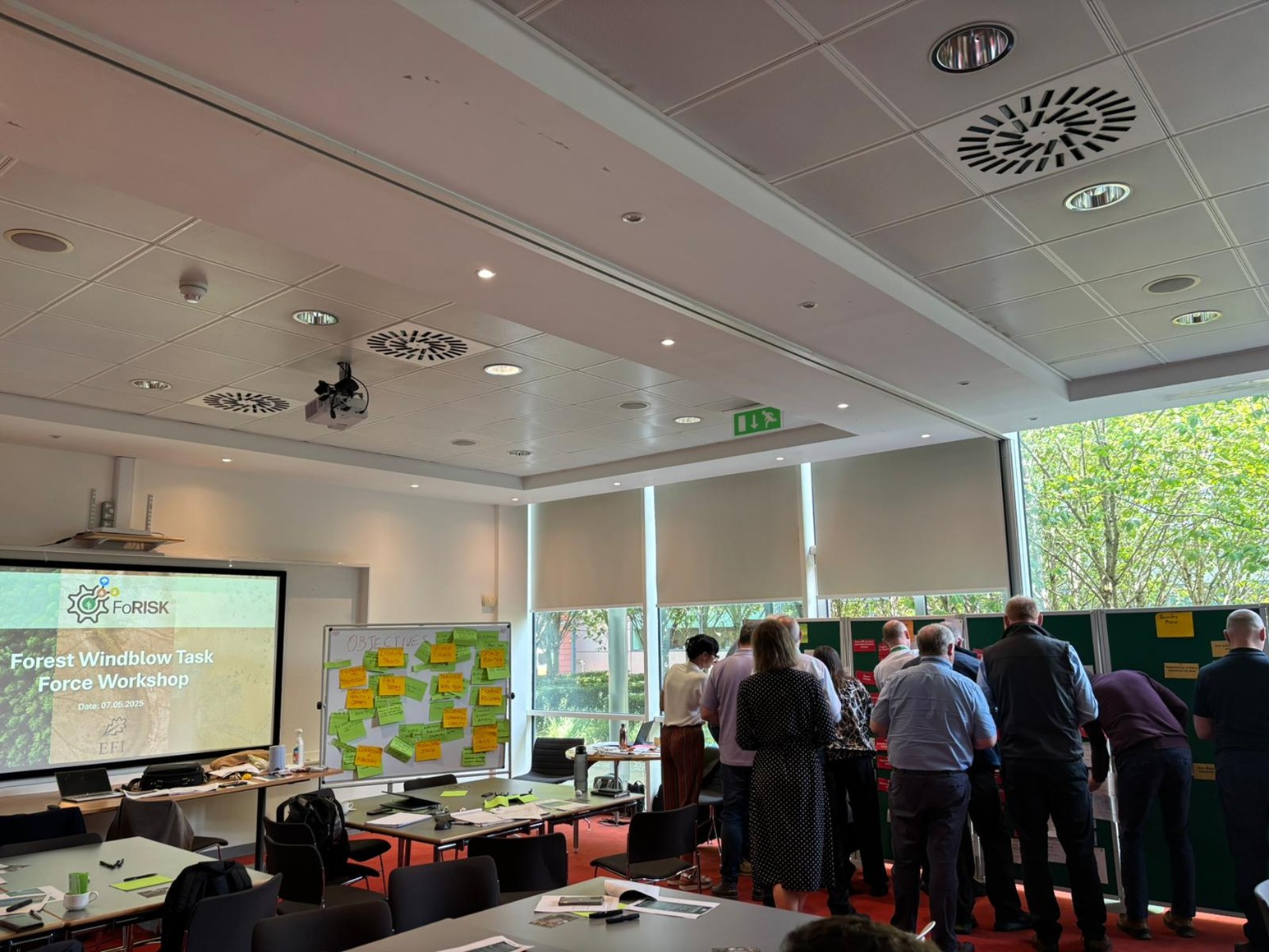
When Windstorm Eowin struck, it was a real-time test of Ireland’s forest sector’s crisis response. In response, the Irish Department of Agriculture, Food and the Marine organised, together with the Forest Risk facility (FoRISK), an experts’ workshop in Dublin on May 7-8, 2025.
Key national stakeholders were invited to deliberate on the required actions for tackling the crisis and preparing for the future ones. Priority actions for the national windblow strategic plan were elaborated, highlighting practical insights into building resilient systems, and fostering partnerships to tackle future storms. Read more on the FoRISK website.
For more information: here
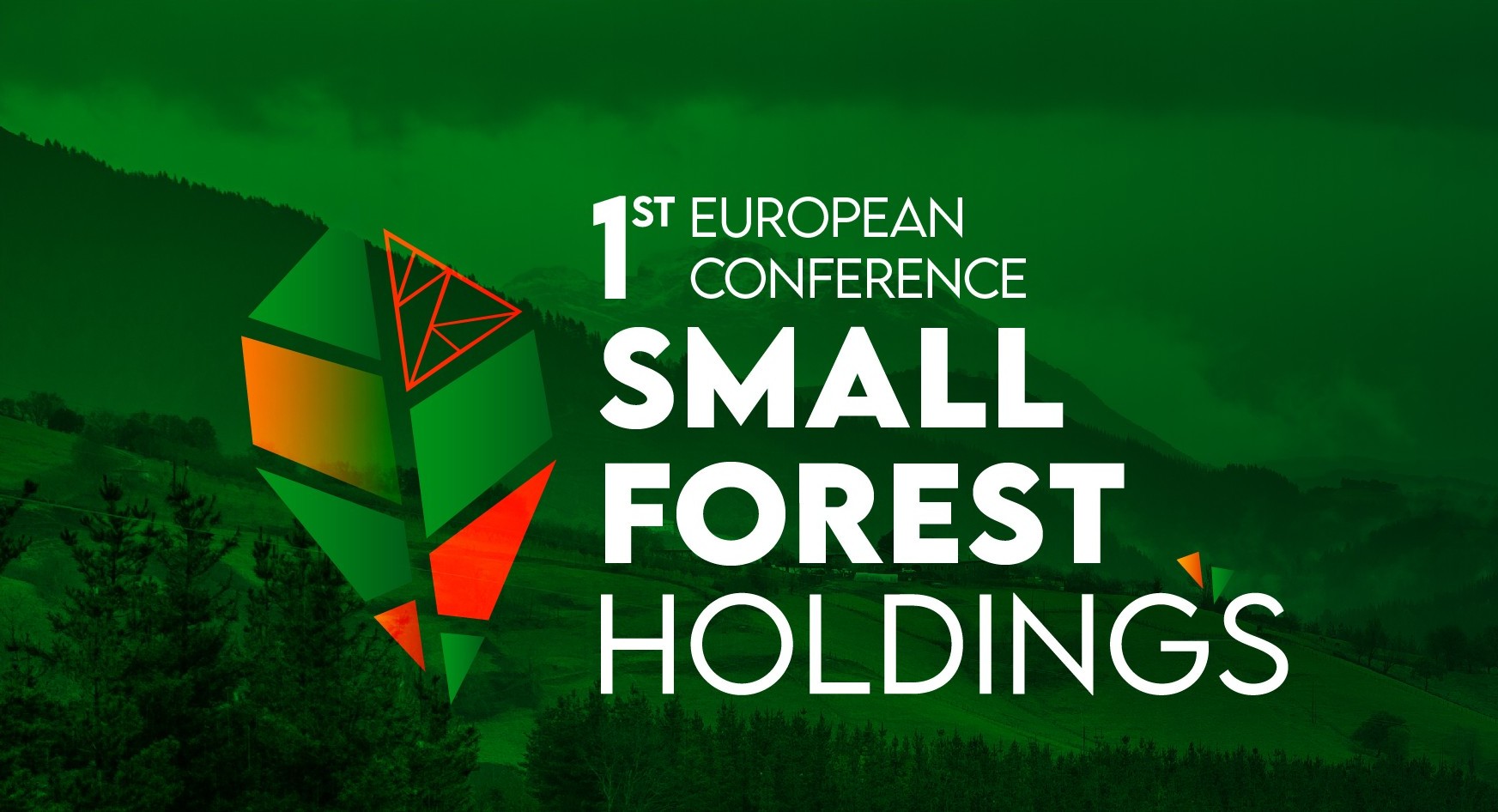
The first European Conference on Small Forest Holdings was held on May 20-22, 2025 at FAO headquarters in Rome. The event brought together over 200 key stakeholders from across Europe, including representatives from public institutions, private organisations, and NGOs spanning the entire European forest sector. The Conference provided a vital platform to exchange knowledge, share best practices, and explore innovative and sustainable approaches to managing small-scale forest holdings. It addressed the profitability of small forest properties, the challenges of fragmentation, and the crucial role of forest owners’ associations within the EU. Discussions focused on promoting sustainable forest management while supporting local value chains based on forest products and ecosystem services. For more information: here

Over 450 participants from 52 countries and 160 organizations gathered in Rome and online to advance Integrated Fire Management (IFM). The event featured nine plenary sessions and nine side events on topics including fire data, Indigenous Peoples’ contributions, community-based fire management, and post-fire restoration.
The key highlight was the launch of Pyra, FAO’s new fire management mascot, introduced to support the Fire Hub. Recordings and photos from all sessions are now available online. Stay tuned for post-event materials and upcoming Fire Hub Working Groups as we continue building momentum for #GlobalFireHub.

The CEI-Bois General Assembly held on June 11 in Helsinki provided an opportunity to experience first-hand the strength, innovation, and sustainability of Finnish forestry and the wood-based sector. It showcased how the industry is actively contributing to the EU’s climate objectives and putting into practice the core principles of the New European Bauhaus: sustainability, aesthetics, and inclusion. From sustainable forest management to cutting-edge wood construction, field visits illustrated the essential role of well-managed forests in supporting carbon and water cycles, preserving biodiversity, and fostering the wellbeing of local communities. Pioneering examples of timber architecture, including multi-storey wooden residential buildings developed as affordable and inclusive housing solutions, were also presented. For more information: here
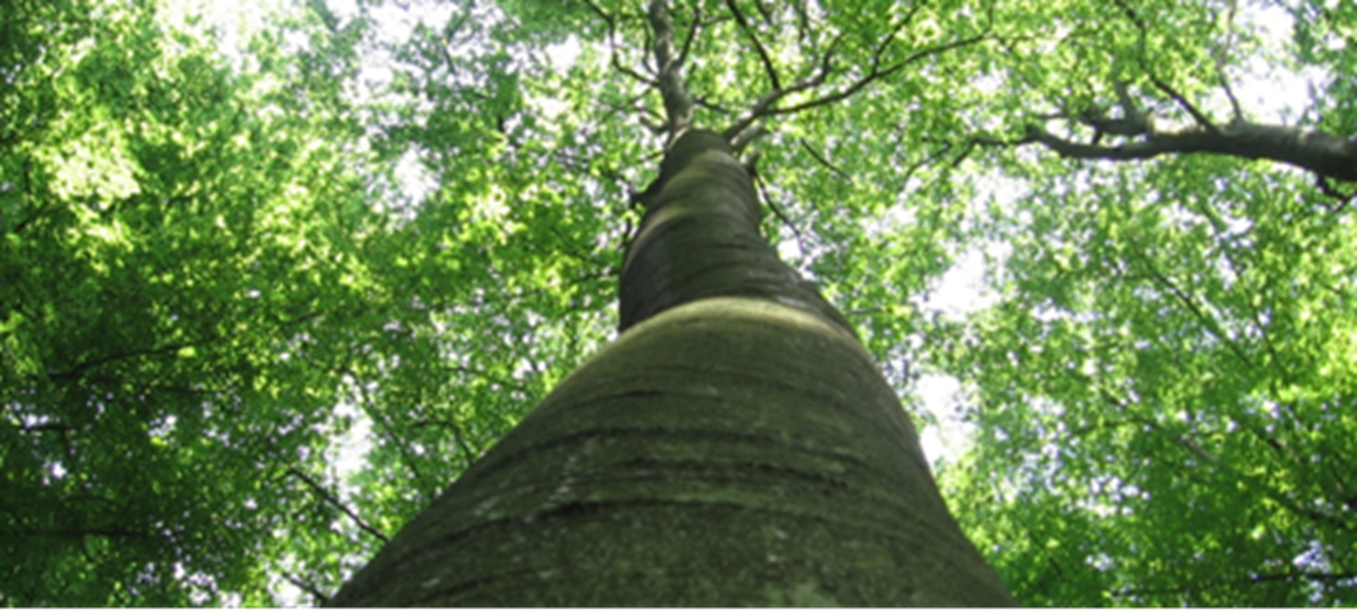
FSC intervened on the role of responsible forest management in delivering nature-based solutions at London Climate Action Week 2025. With policymakers and financial institutions shaping the road to COP30, FSC engaged in discussions on topics such as climate finance, ecosystem services, and Verified Impact.
FSC provides globally recognised science-based tools that lead to lasting environmental and social impact—foundations that guided our participation at LCAW. Through this engagement, FSC aimed to reinforce strategic alliances and ensure that forests remain at the heart of EU and global climate policy, now and in the future.
For more information: here

On June 17, 2025, the TRANSFORMIT consortium brought together partners from China and the EU for a collaborative workshop focusing on progress, opportunities, and the way forward. During the meeting, participants exchanged updates on ongoing work packages, aligning their expectations and priorities.
The workshop also opened up new possibilities for cooperation, emphasizing the value of mutual learning and joint research initiatives. Initial ideas were put forward for future collaborations, including key stakeholders, contributions, and potential formats of exchange. The dialogue is set to continue at the TRANSFORMIT General Assembly in Prague.
For more information: here
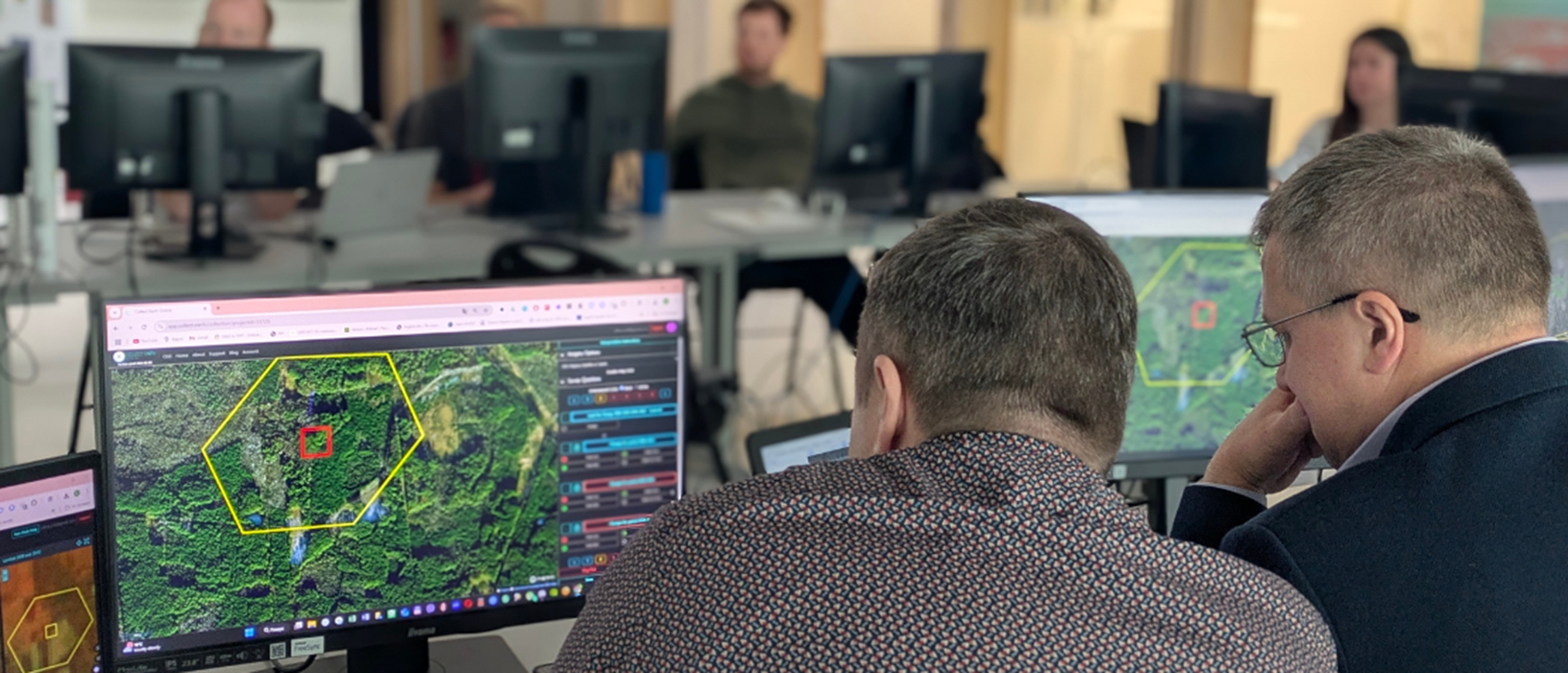
The Food and Agriculture Organization of the United Nations has trained European experts in advanced remote sensing methodologies that will help generate consistent, comparable, and high-quality data on the region’s forests. At a week-long training event hosted by the French National Institute for Geographic and Forest Information (IGN) in Saint-Mandé in May, 12 experts from France, Germany, Italy, Norway, Spain, Sweden, and Ukraine learned to use Collect Earth Online (CEO)—an open-source software for satellite image interpretation – to collect data for assessing forest extent, trends, and drivers of change from 2000 to 2024 based on a statistical sample.
For more information: here

On June 26, 2025, the Food and Agriculture Organization of the United Nations (FAO) hosted the third webinar in its dynamic global series on sustainable forest-based bioeconomy approaches.
Global demand for forest products is expected to grow significantly by 2050. This will put increasing pressure on forest product value chains and resource availability. The webinar explored sustainable forest product supply chains that balance economic, environmental, and social needs. A diverse lineup of speakers shared their perspectives on opportunities for innovation to catalyse sustainable forest-based bioeconomy approaches.
For more information: here